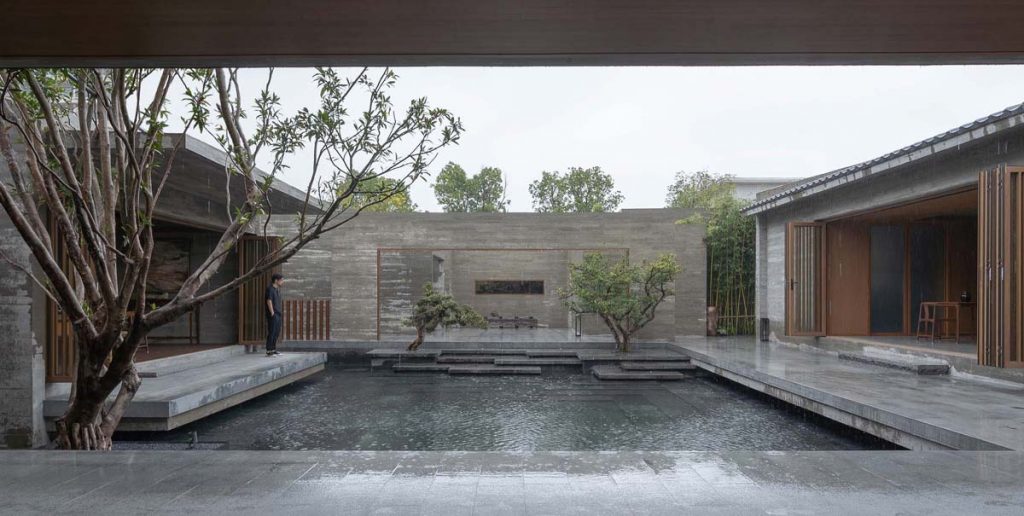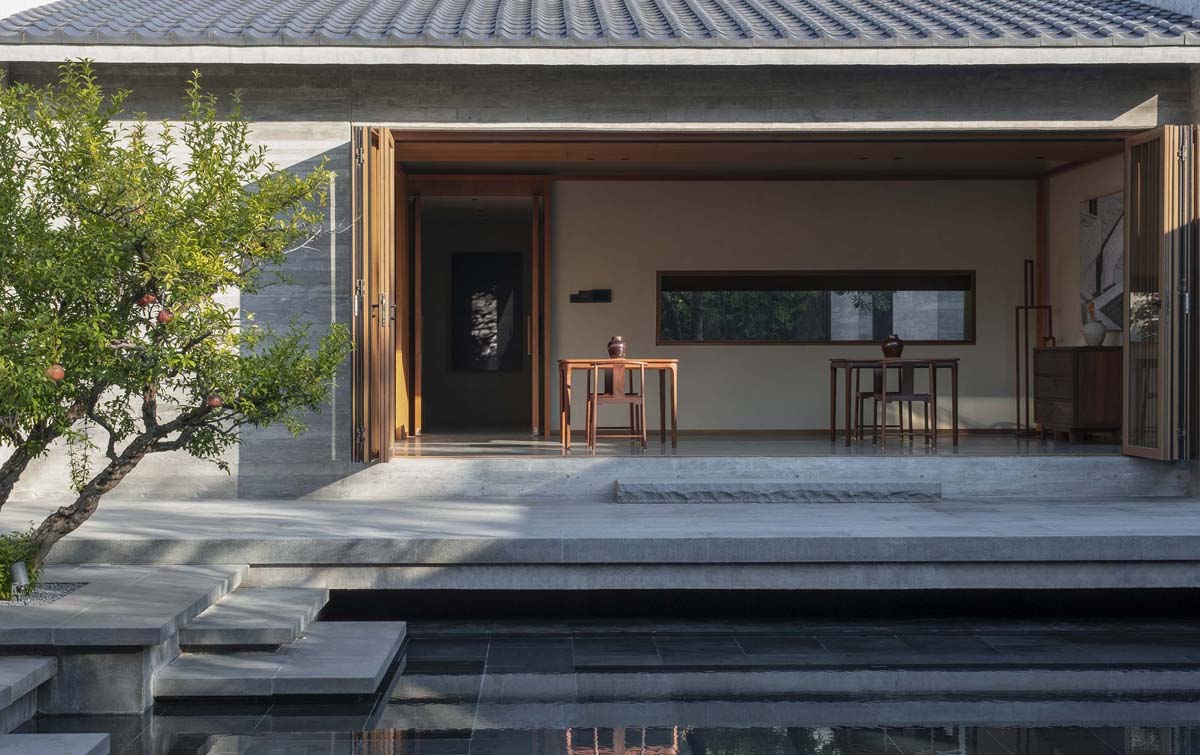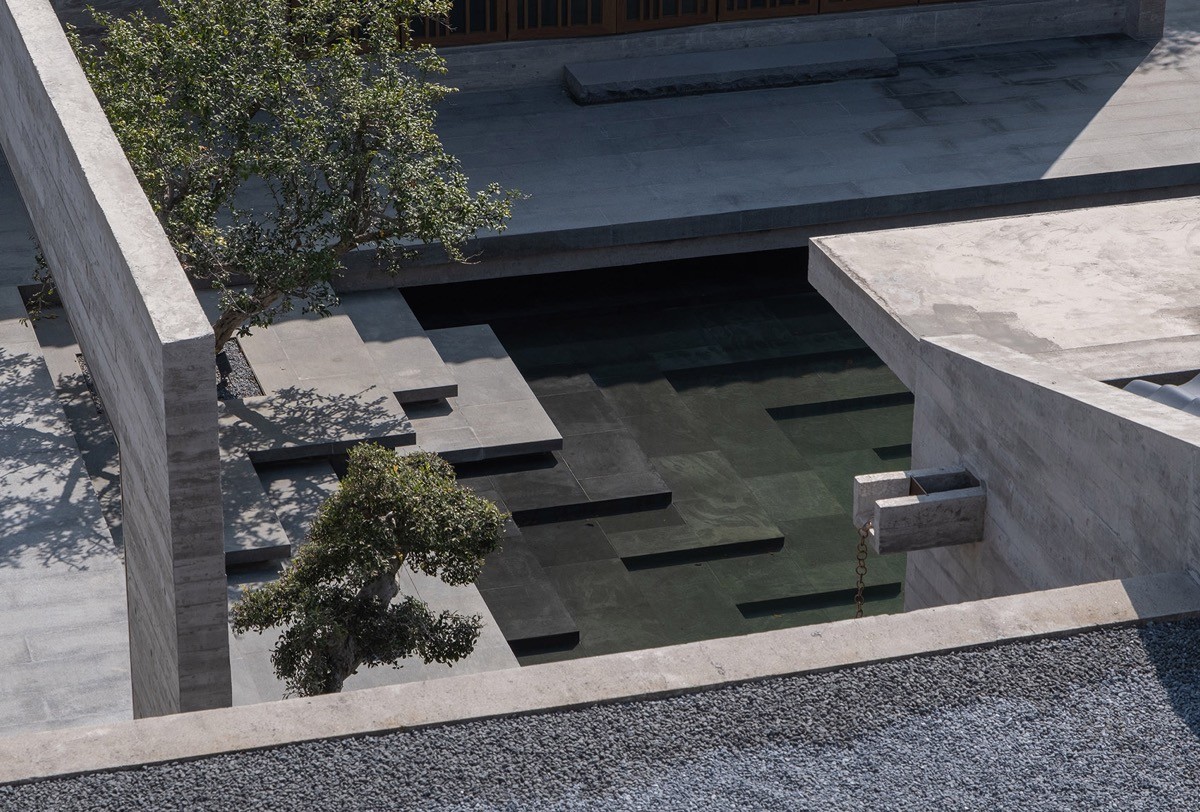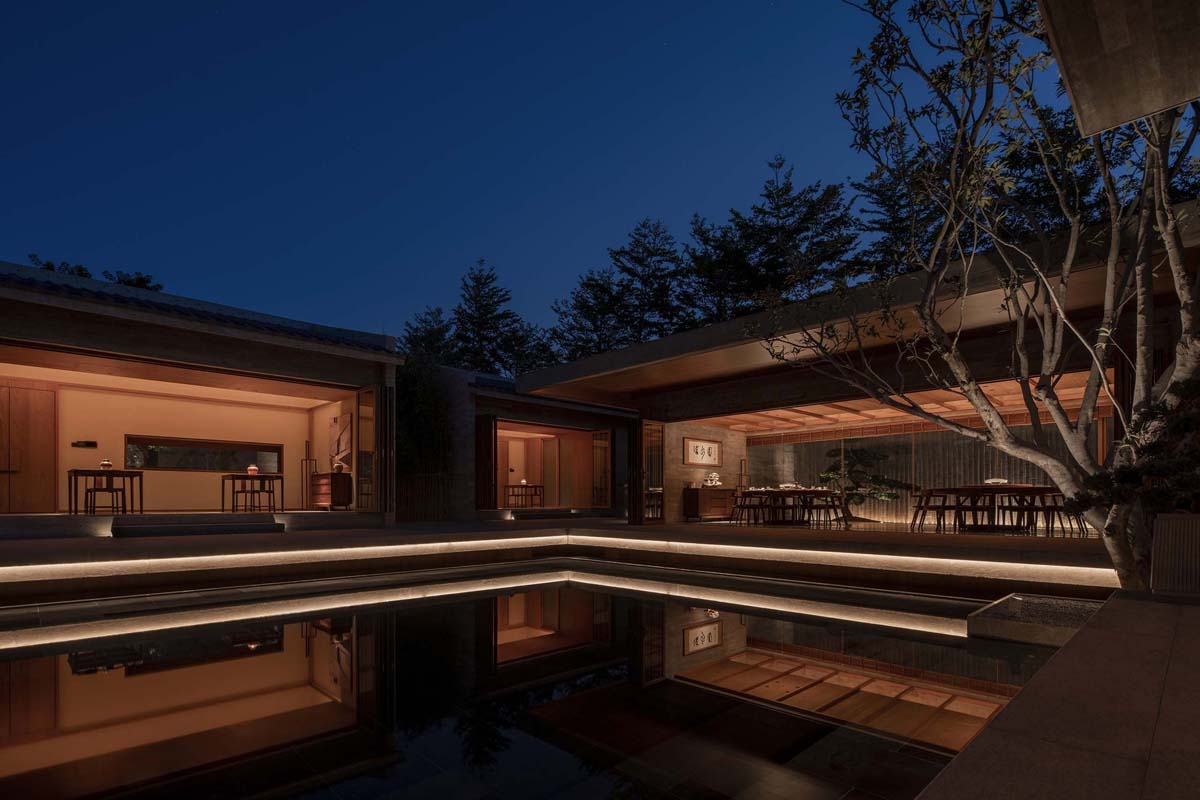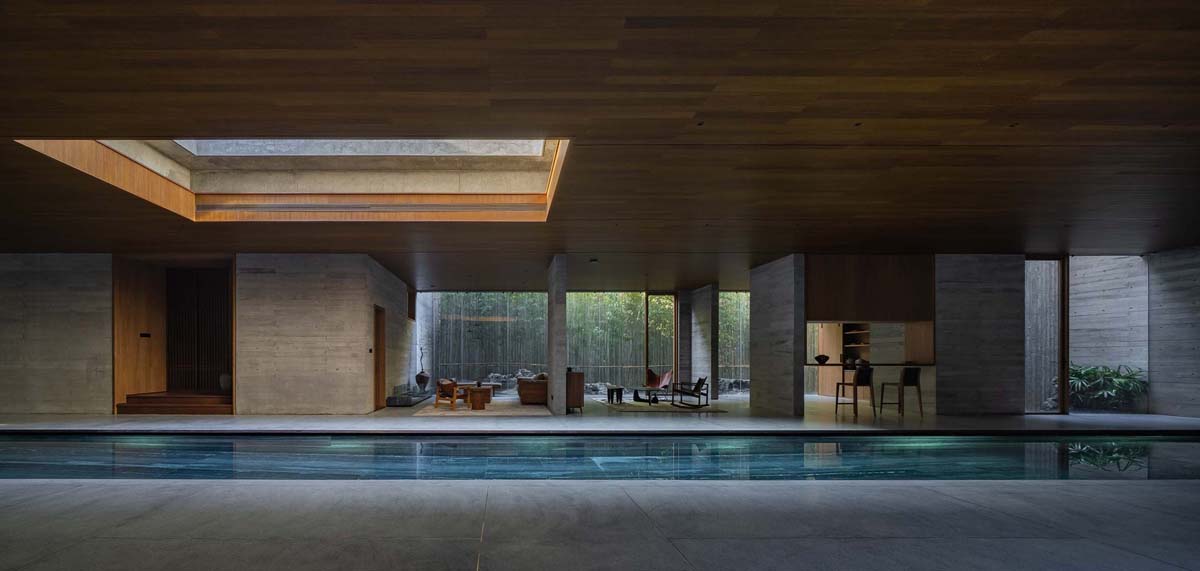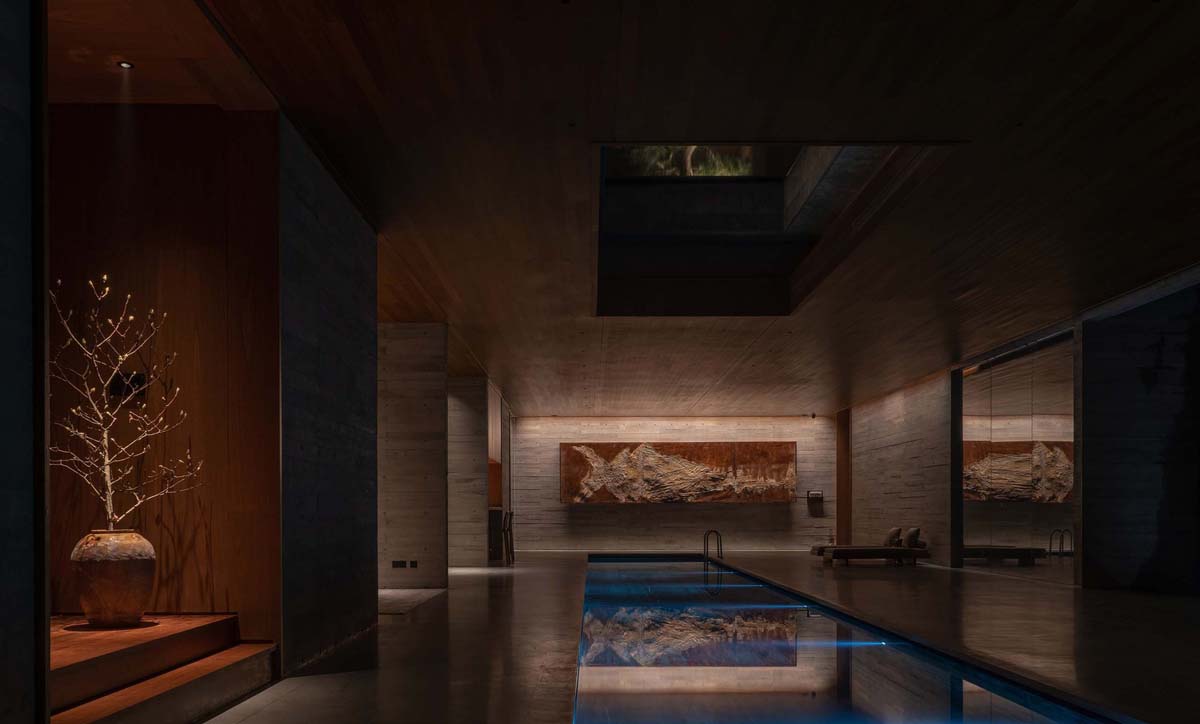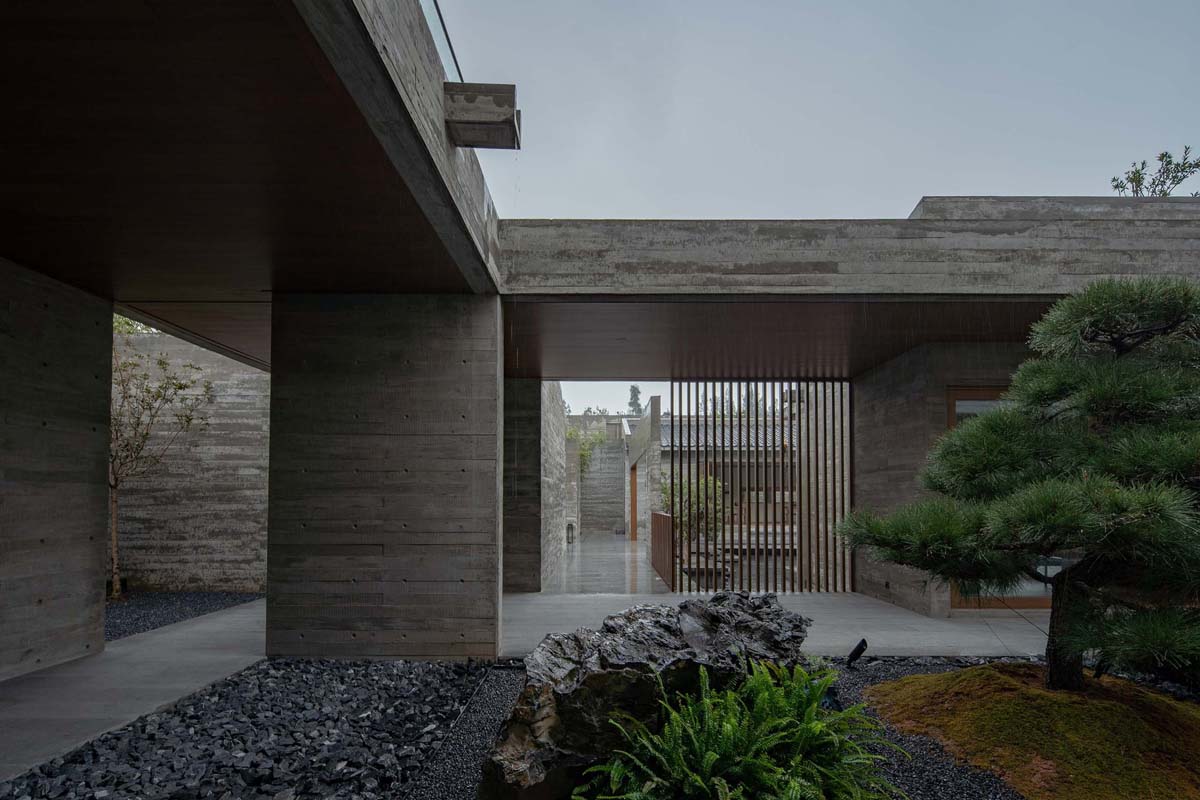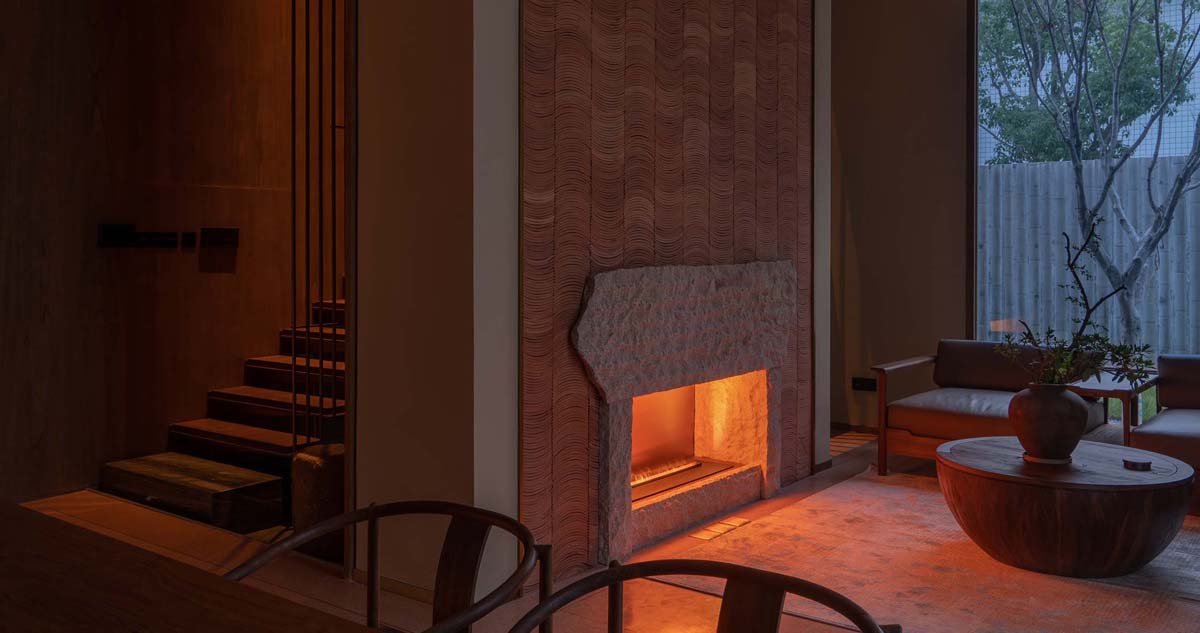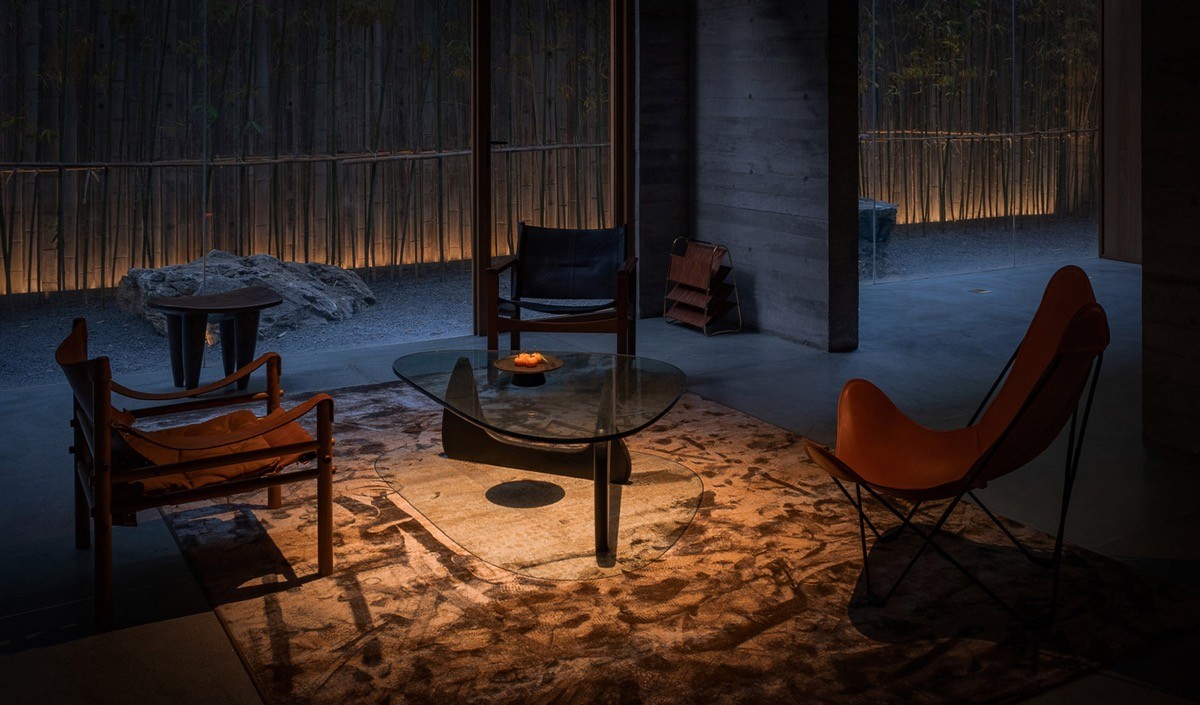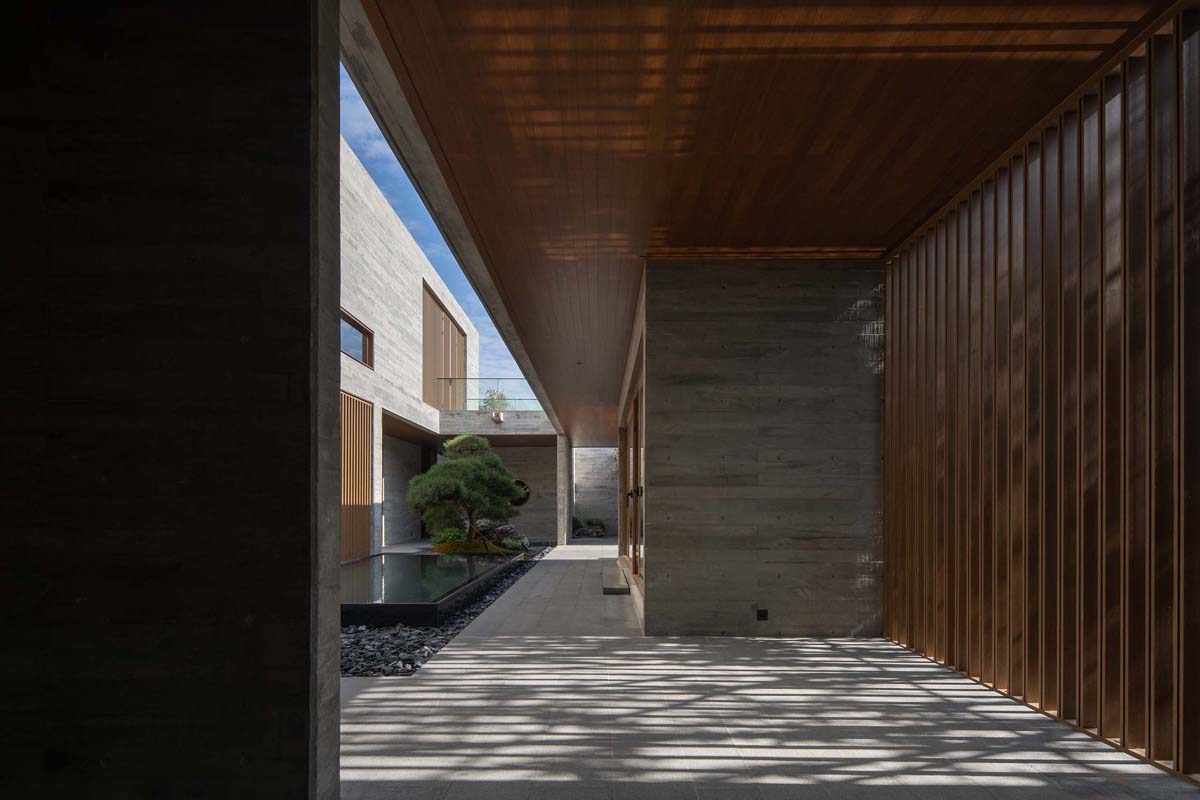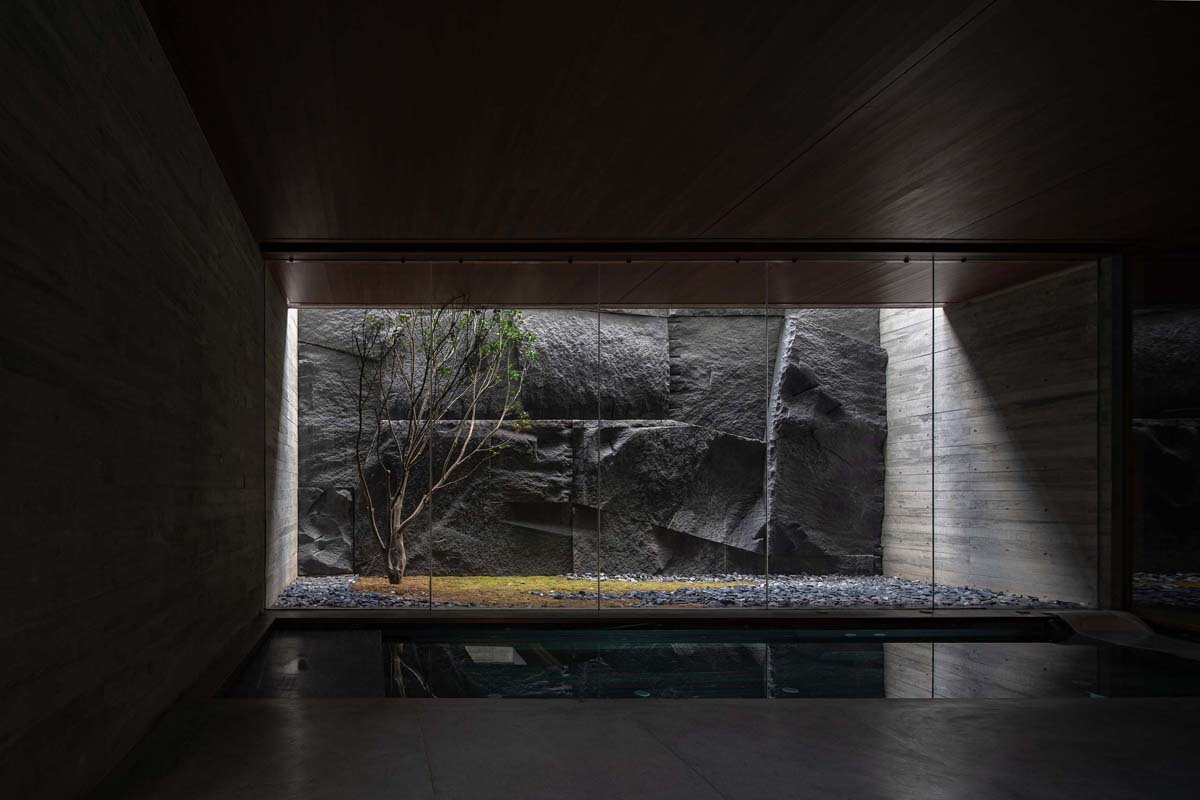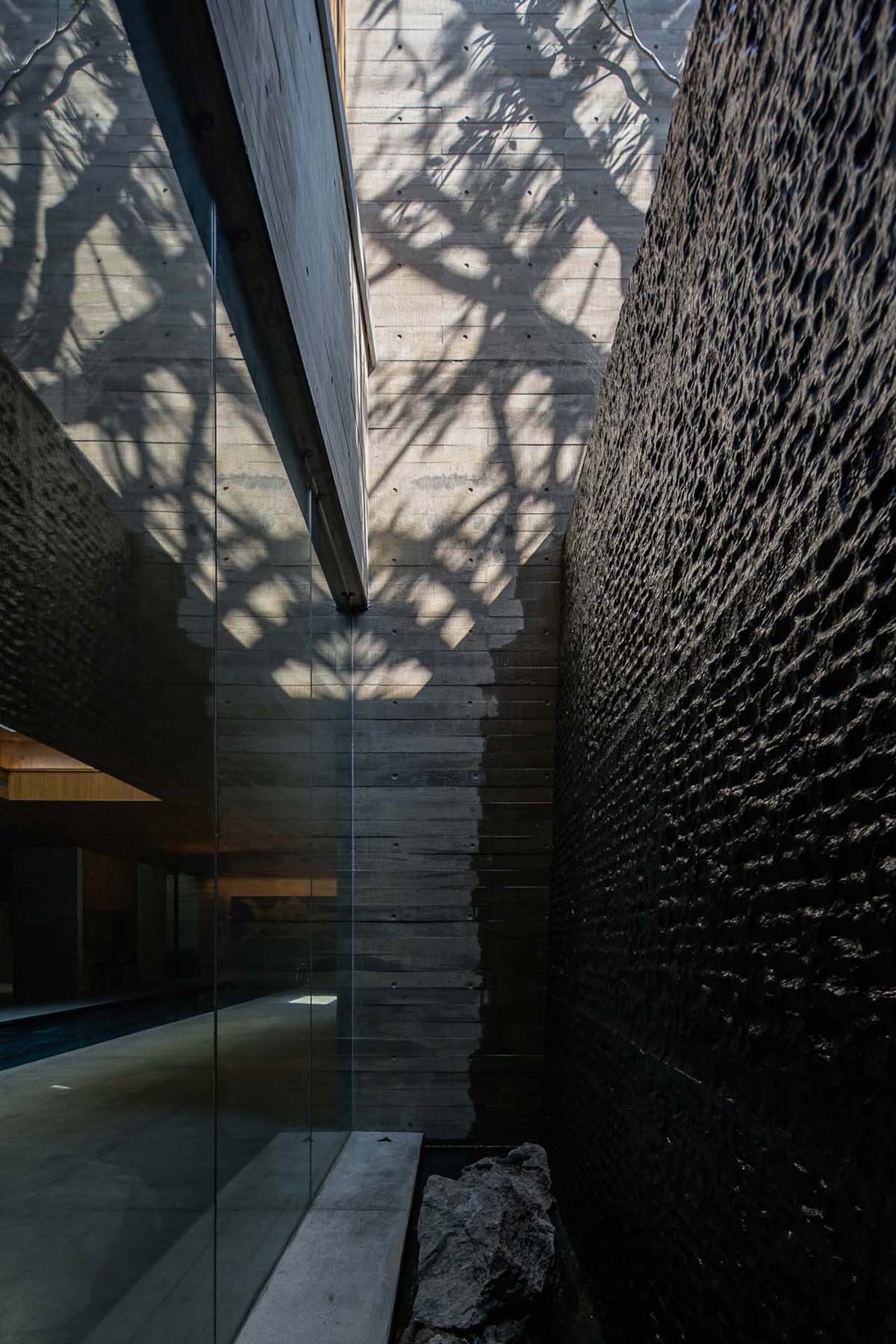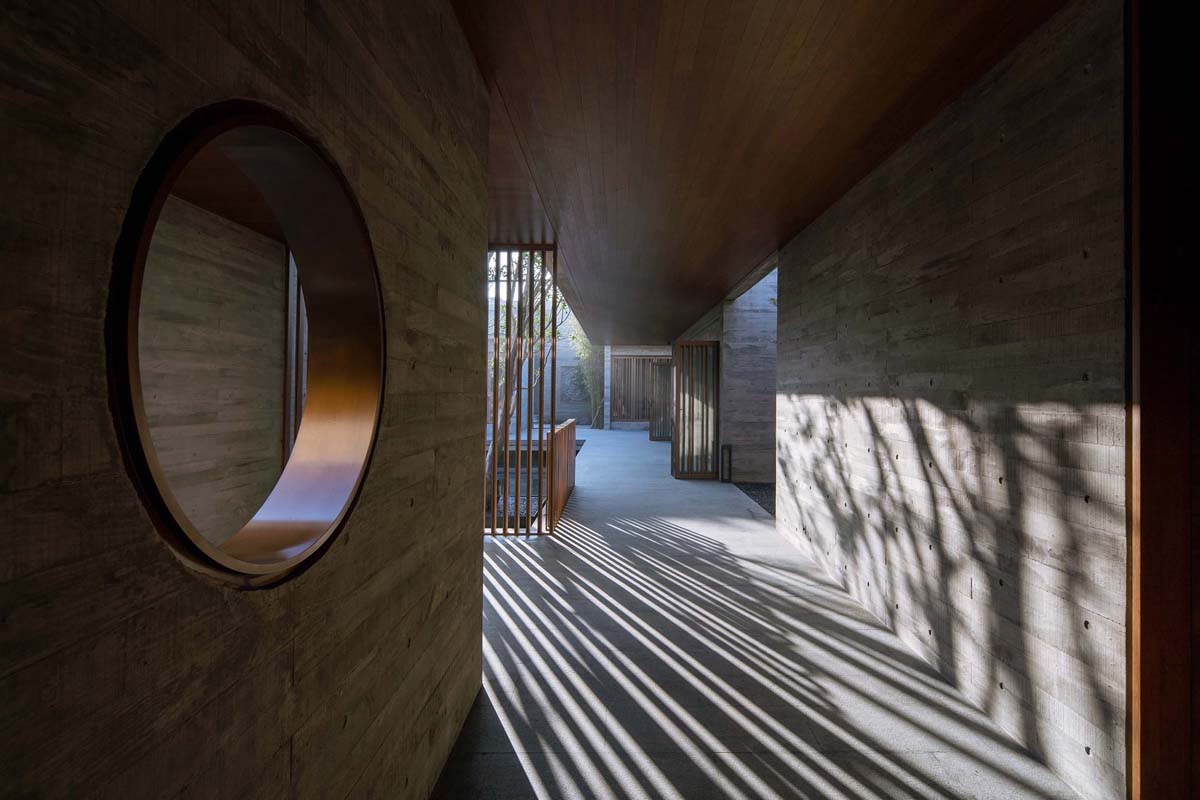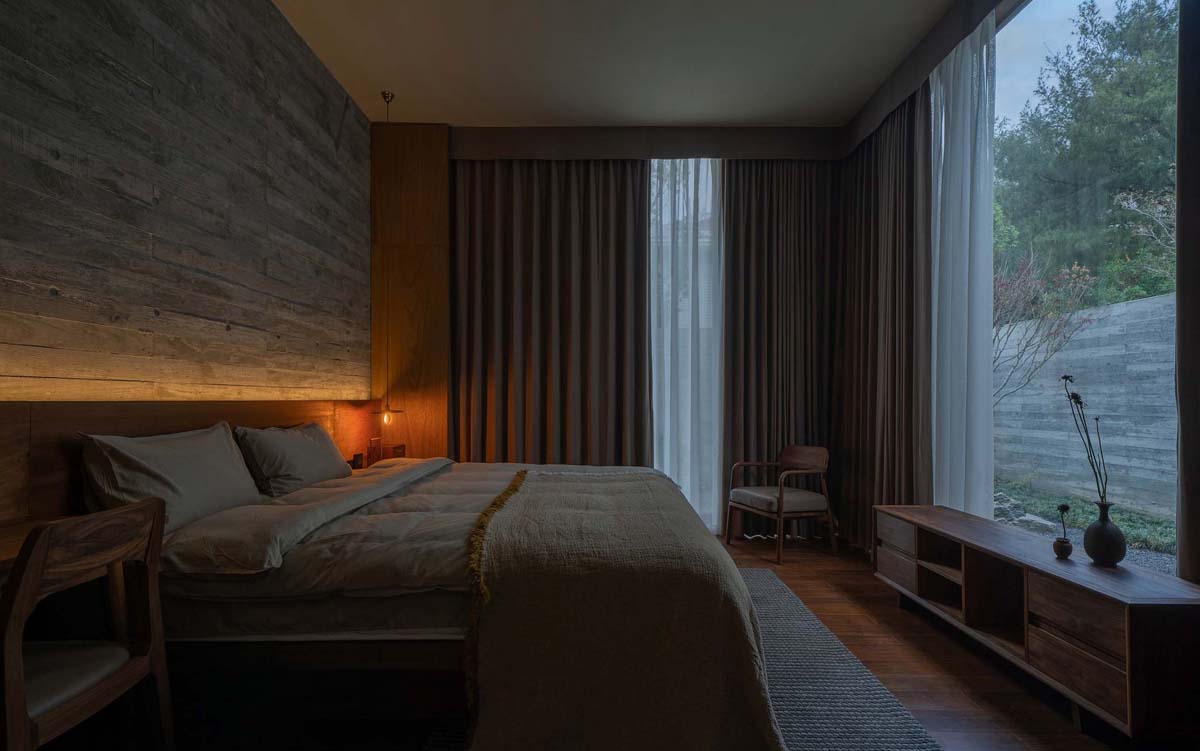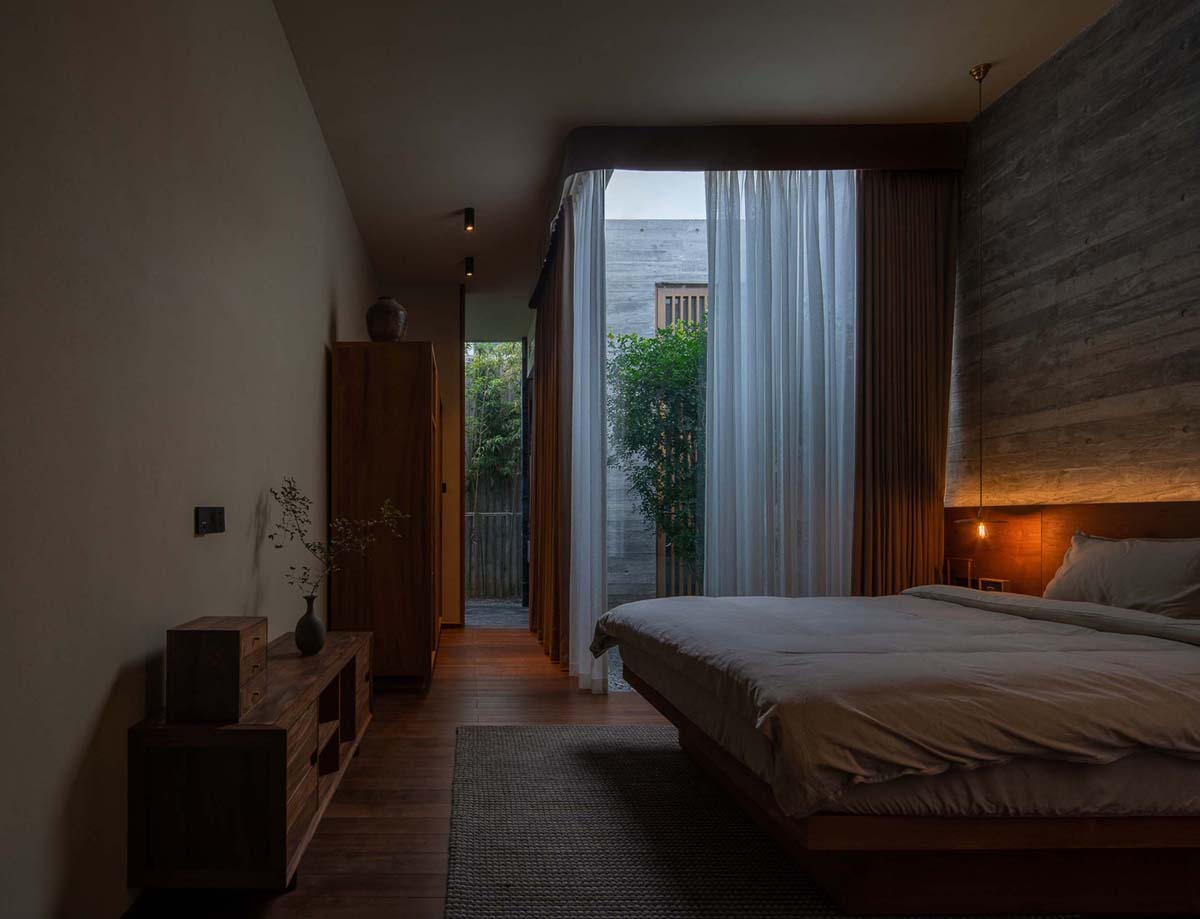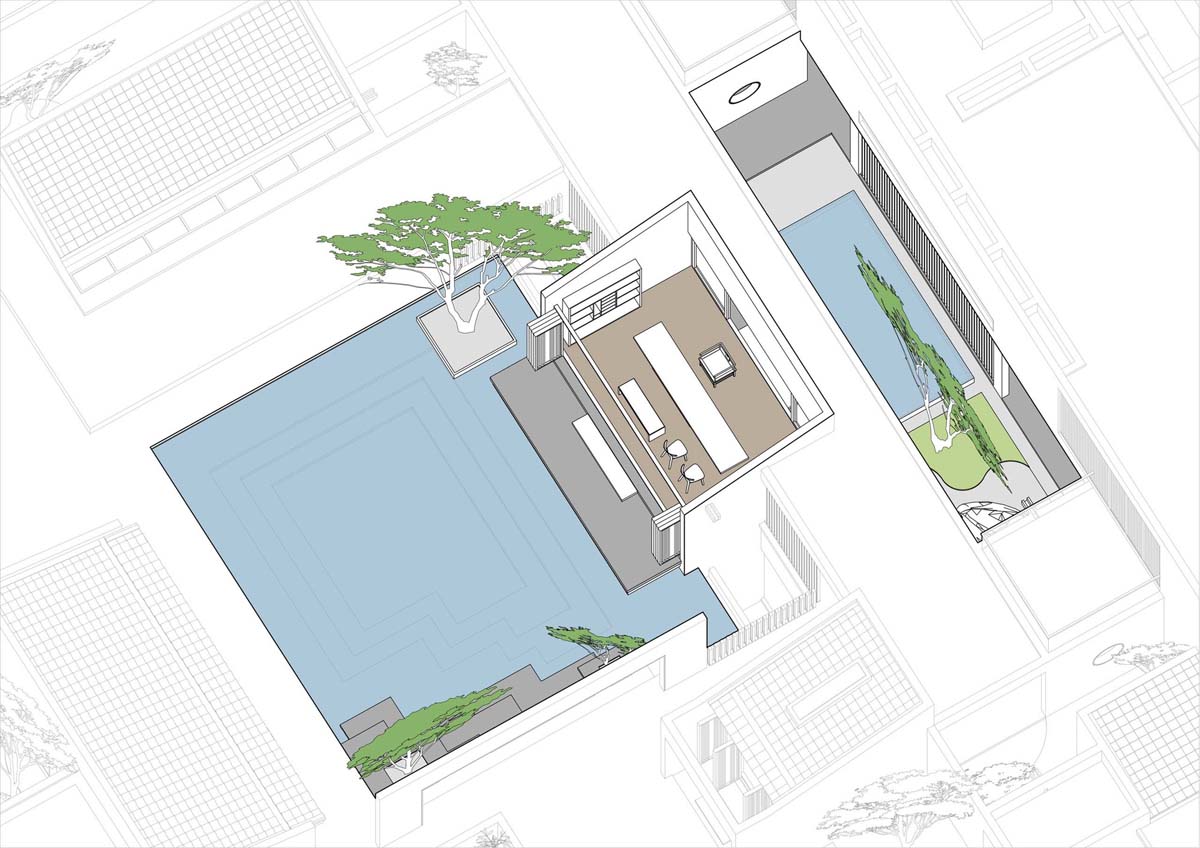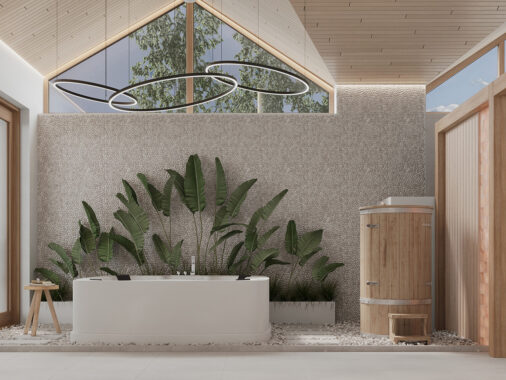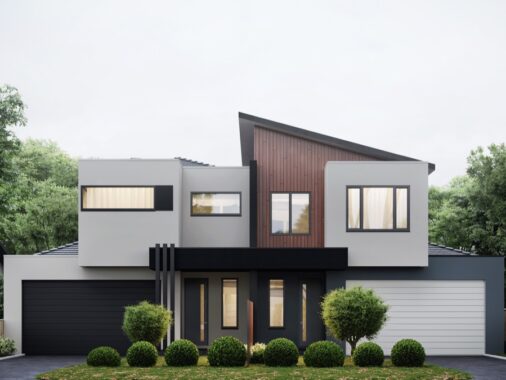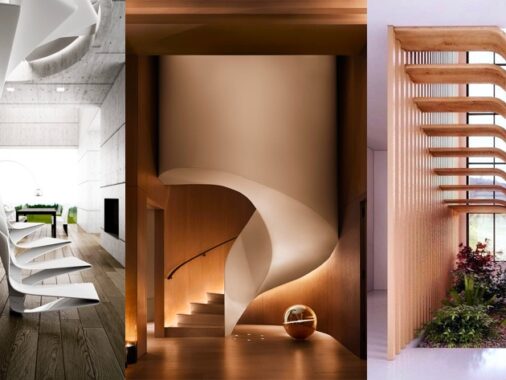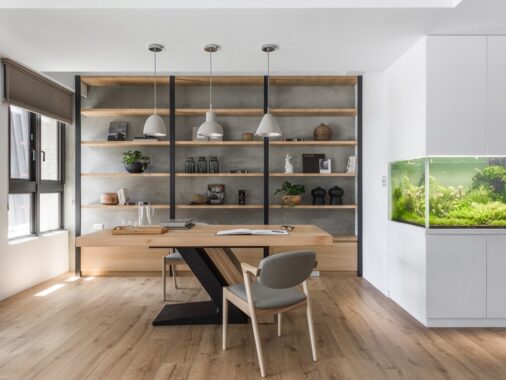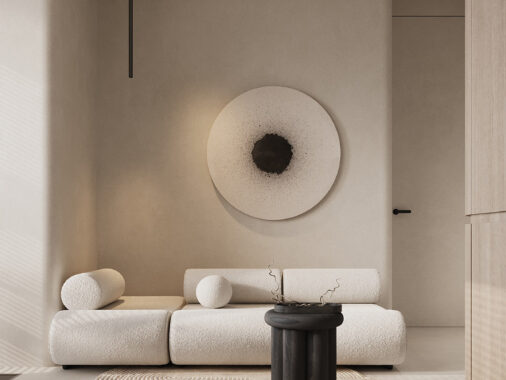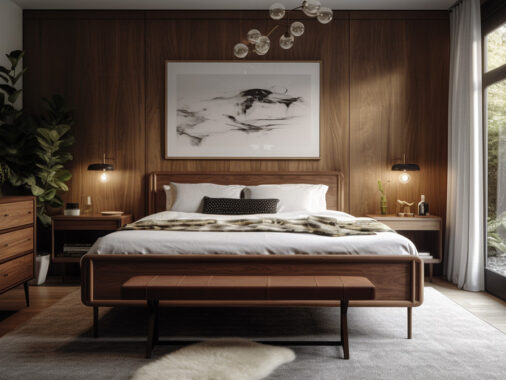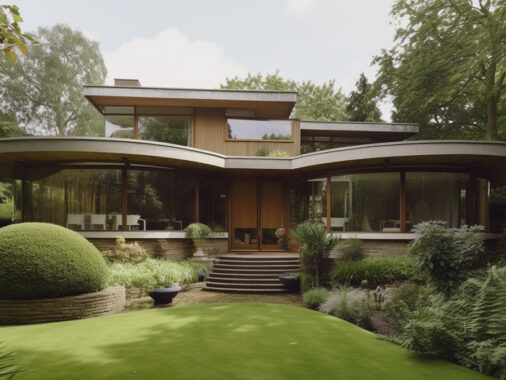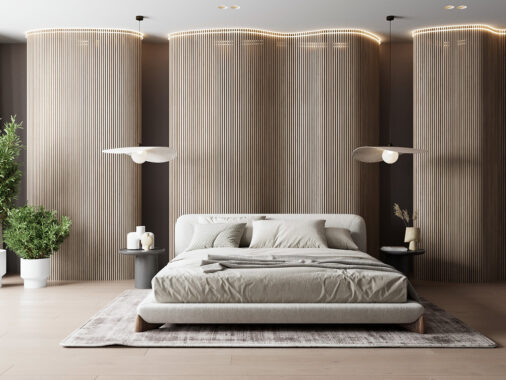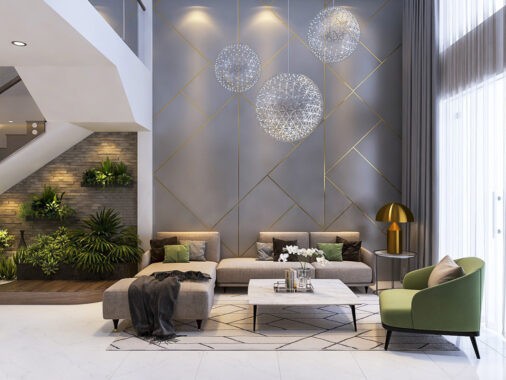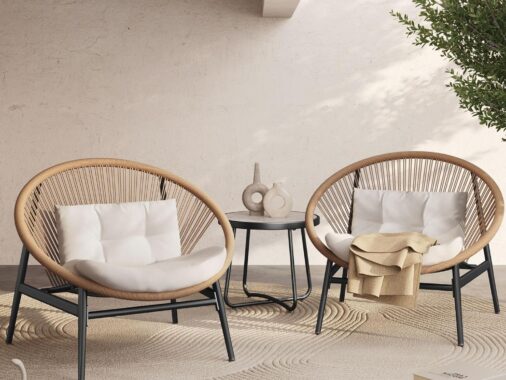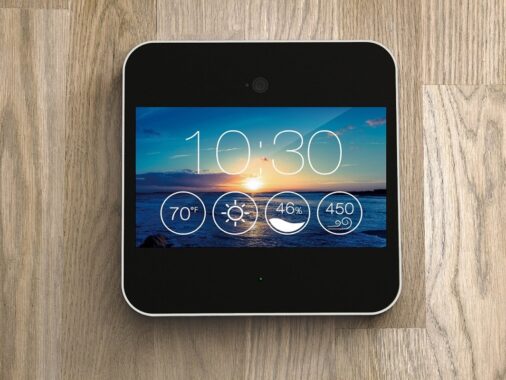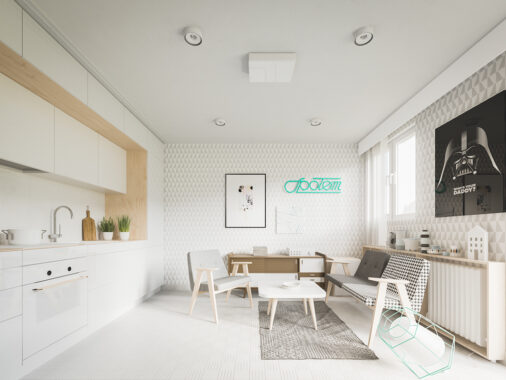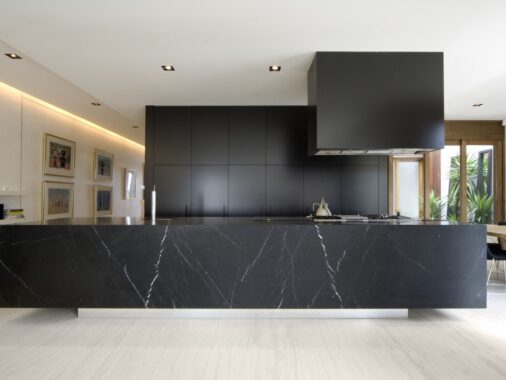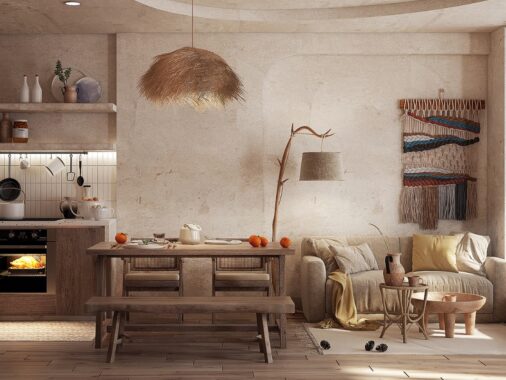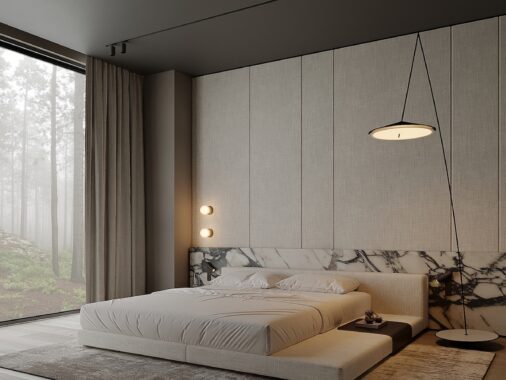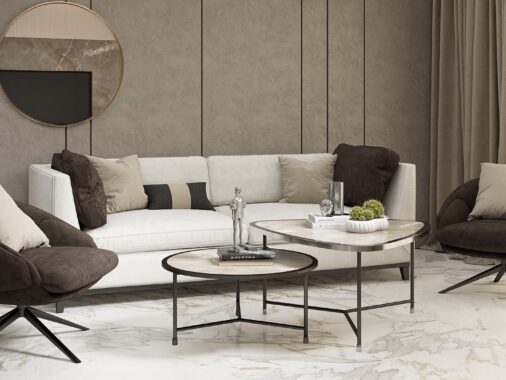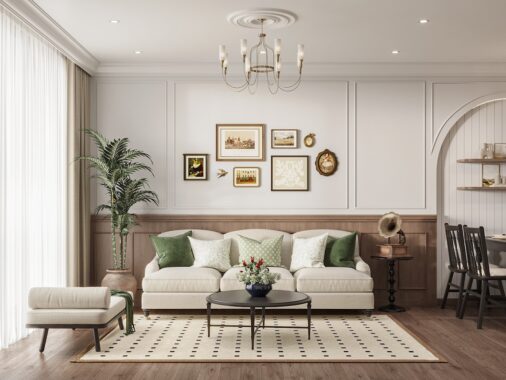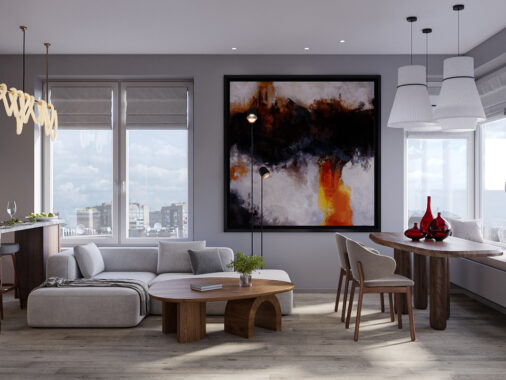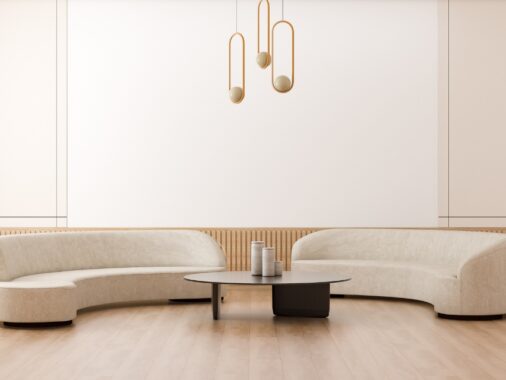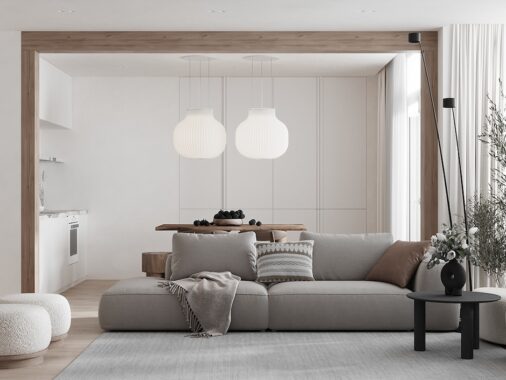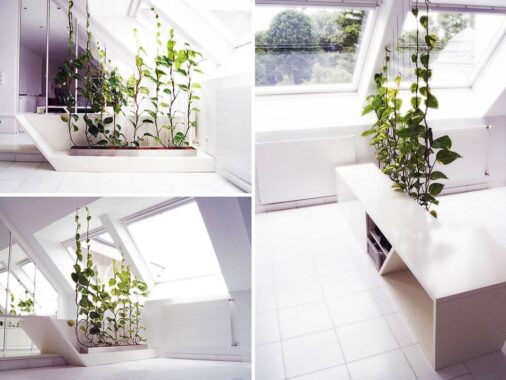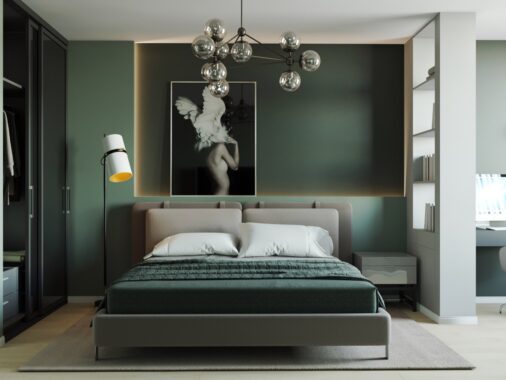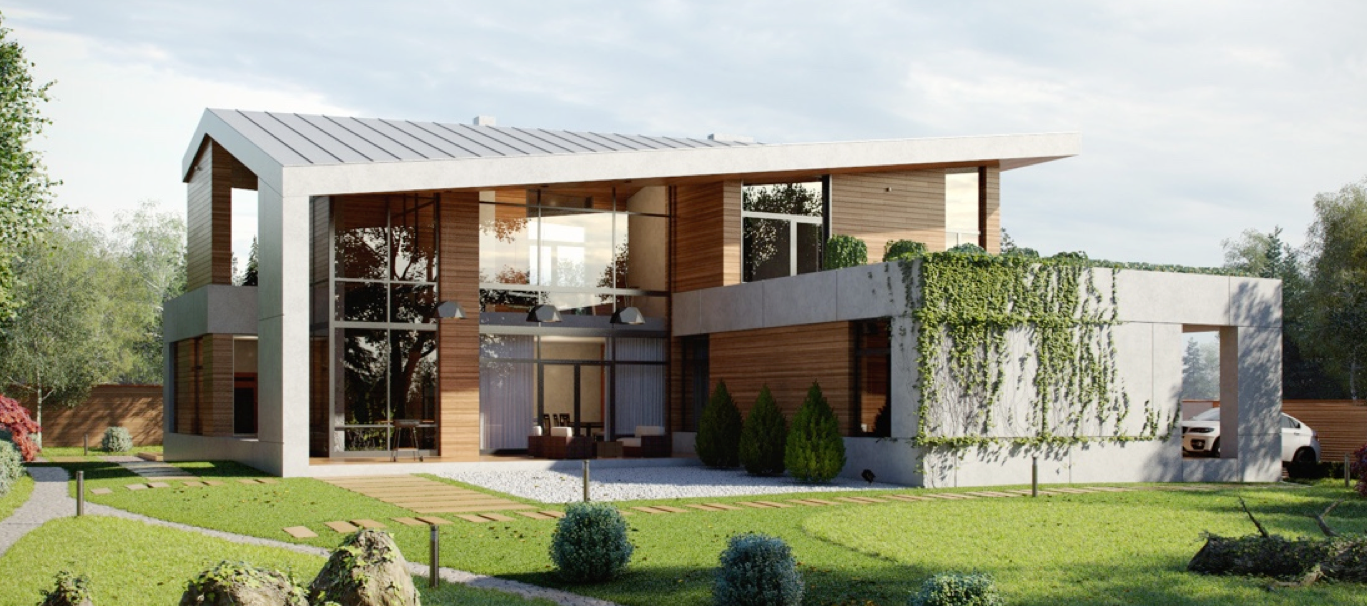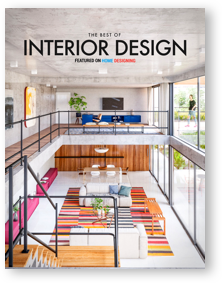Flowing Garden House is a large, luxury family compound, built for two entrepreneur brothers in the city of Zhangzhou, China. Created by architectural firm More Than Arch Studio, the 1700 square metre home stands apart from the majority of modern houses in China. This home is composed of three parts, which include a private unit for each brother’s family and a communal space for family gatherings, fitness and more. The social spaces centre around a peaceful courtyard design with a huge pond and majestic trees. The hope for this unique home design is that it will become a hub for extended family, and be the home fire that forges memories for generations to come.
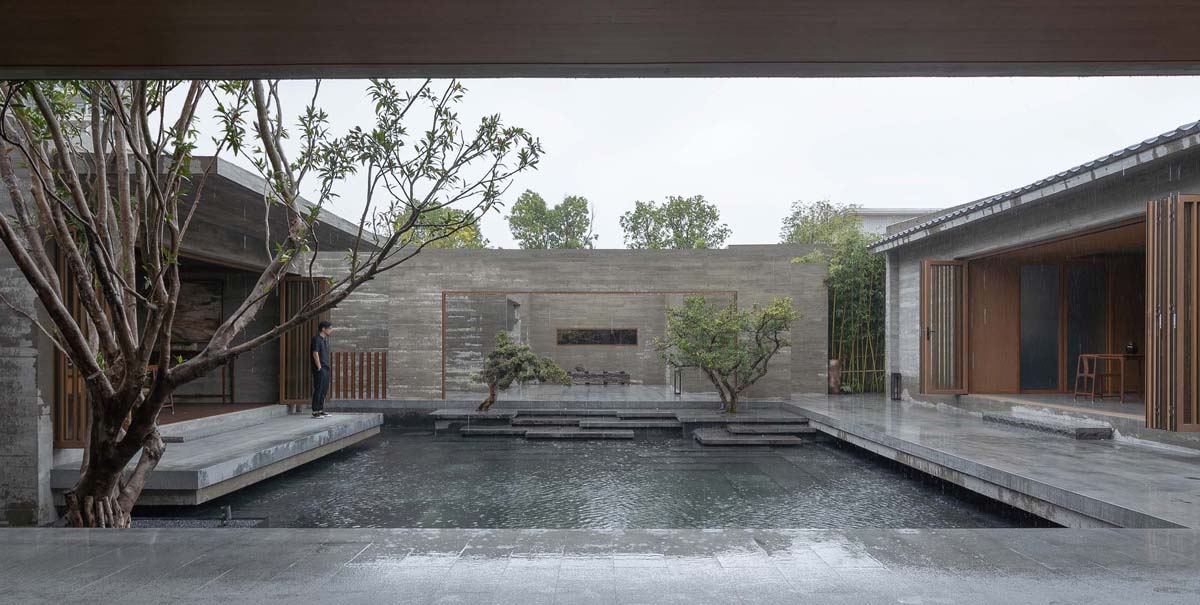
It is a huge pond design that gives this home a feeling of close family connection. The central pond courtyard kindles a blanketing sense of serenity that flows into each branch of the house.
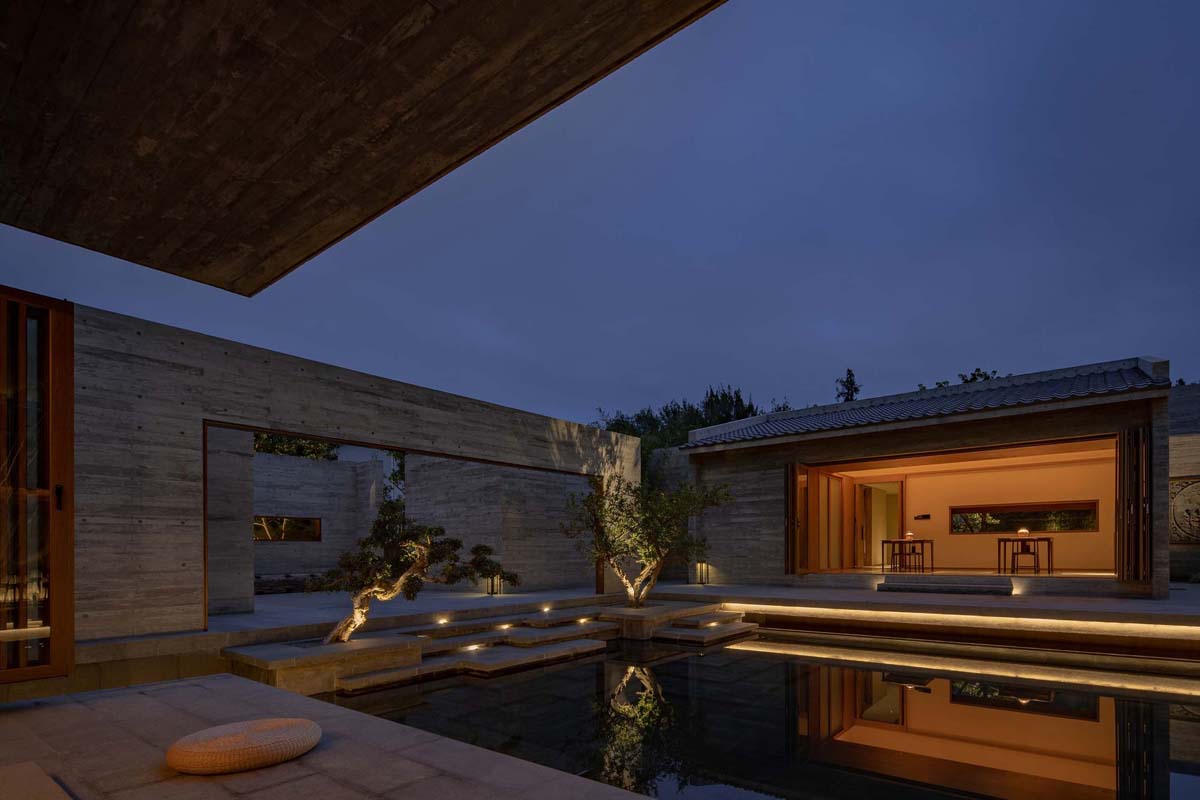
At night, the courtyard is a warm and welcoming space under soft exterior lighting. Focussed LED spotlights dance across the stone steps that lead down to the pond to create a pretty, tiered effect and promote safety in low light.
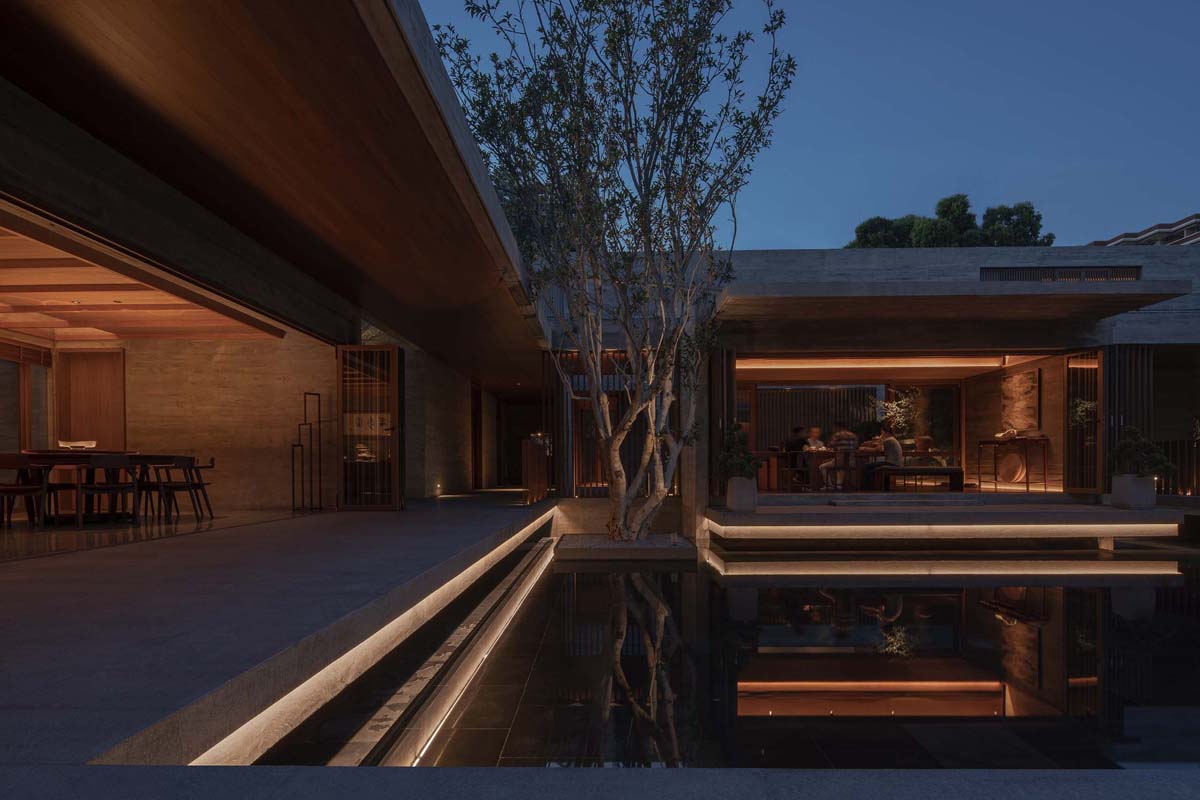
Mature trees thrive around the perimeter of the courtyard, creating height, texture, and natural beauty.
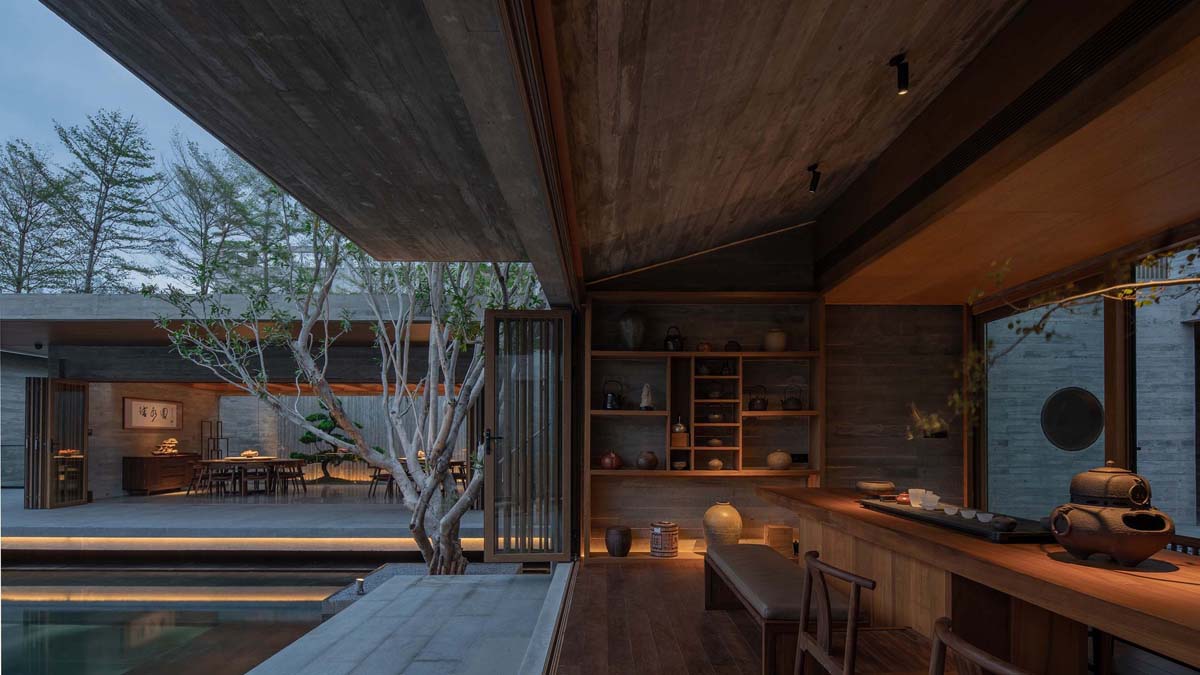
A traditional Chinese tea room opens up fully to the calming courtyard view. Tea drinking is elemental in Southern Fujian, as well as an integral part of hospitality.
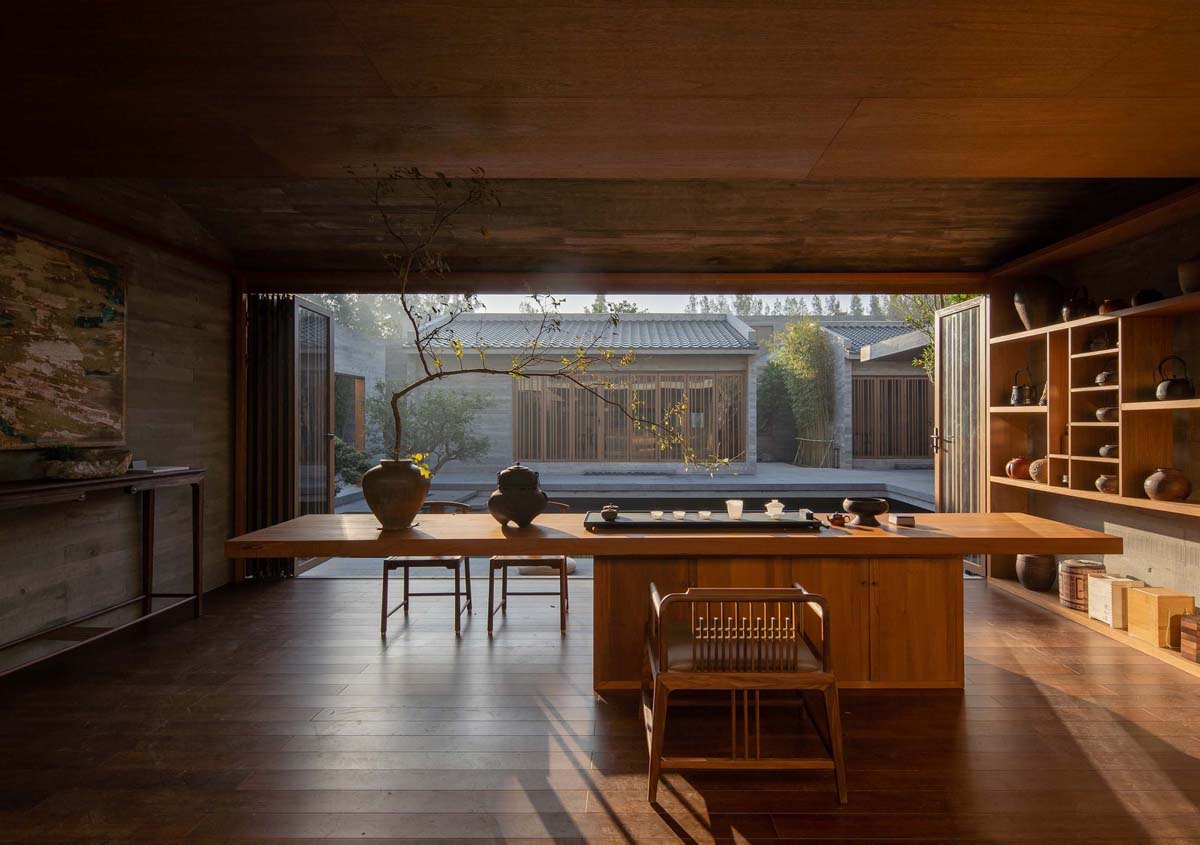
With bi-fold doors drawn back, the tea room design is extended by a narrow terrace that leads to the water’s edge.
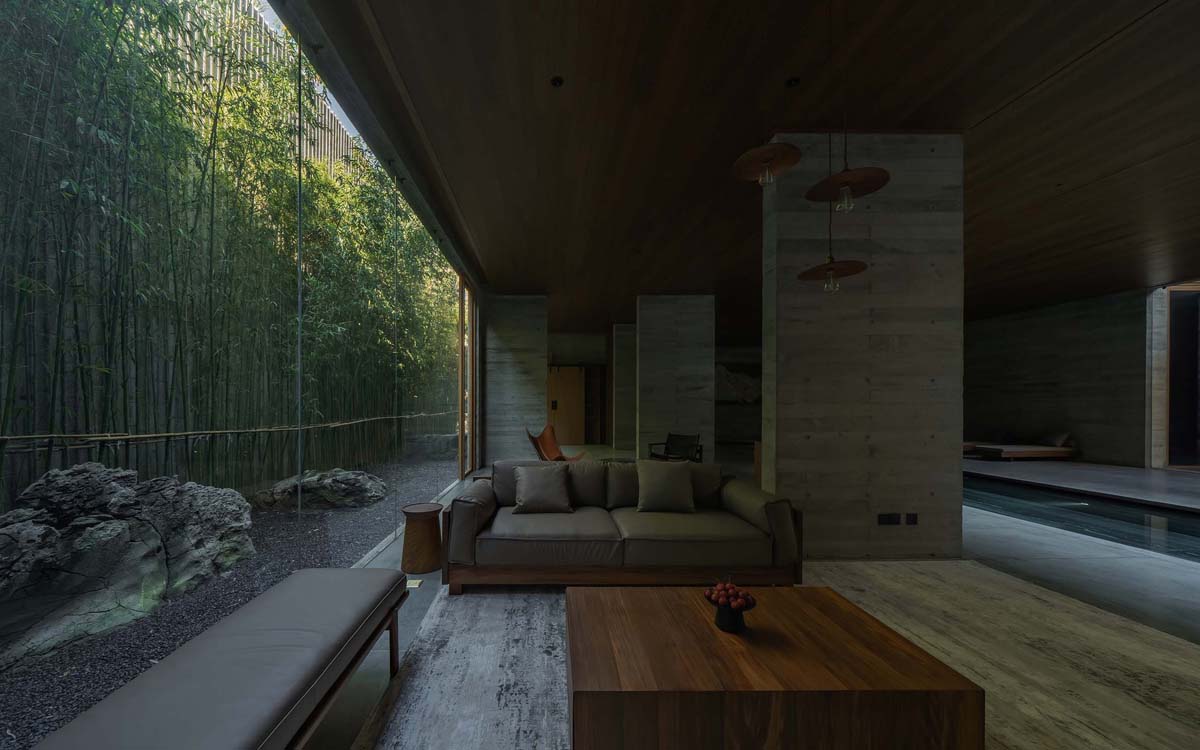
An indoor heated pool is placed in the basement, with lounge areas and meeting places situated alongside it.
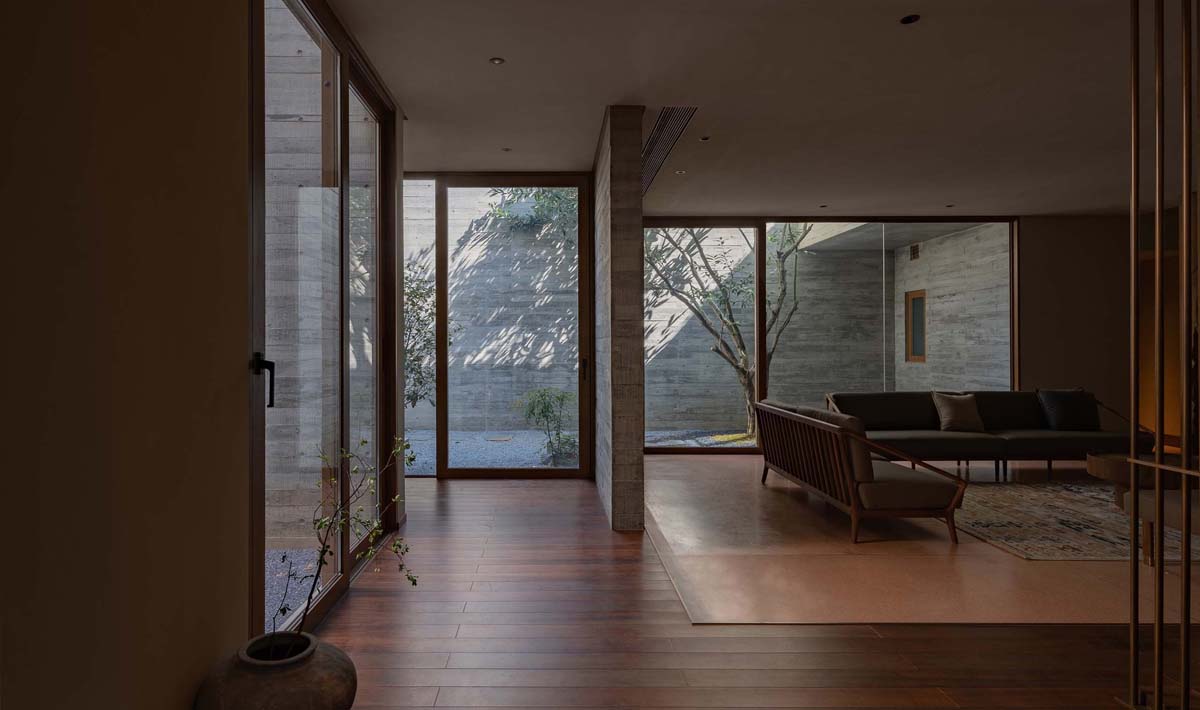
The material palette throughout the home compound remains consistent in warm wood grain and board-formed concrete. The palette is softened slightly in the two private residential volumes to create a comfortable vibe, where raw concrete walls are minimised by beige stucco.
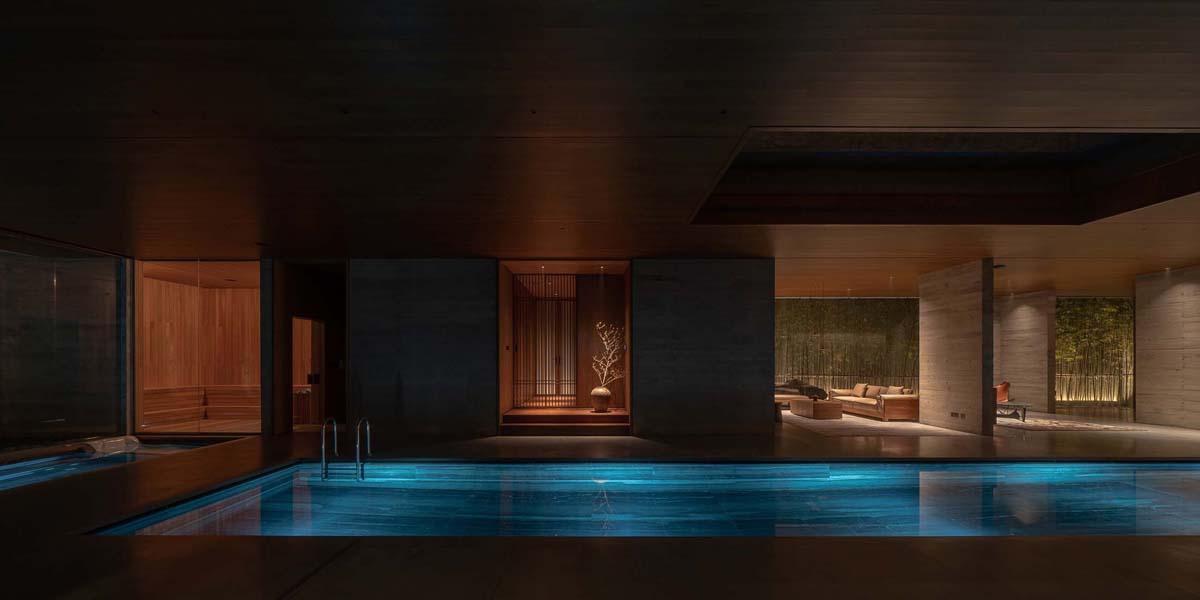
In the larger, more open social spaces, cool, textural concrete rules with little additional decoration. Bamboo ceilings create a warm counterbalance.
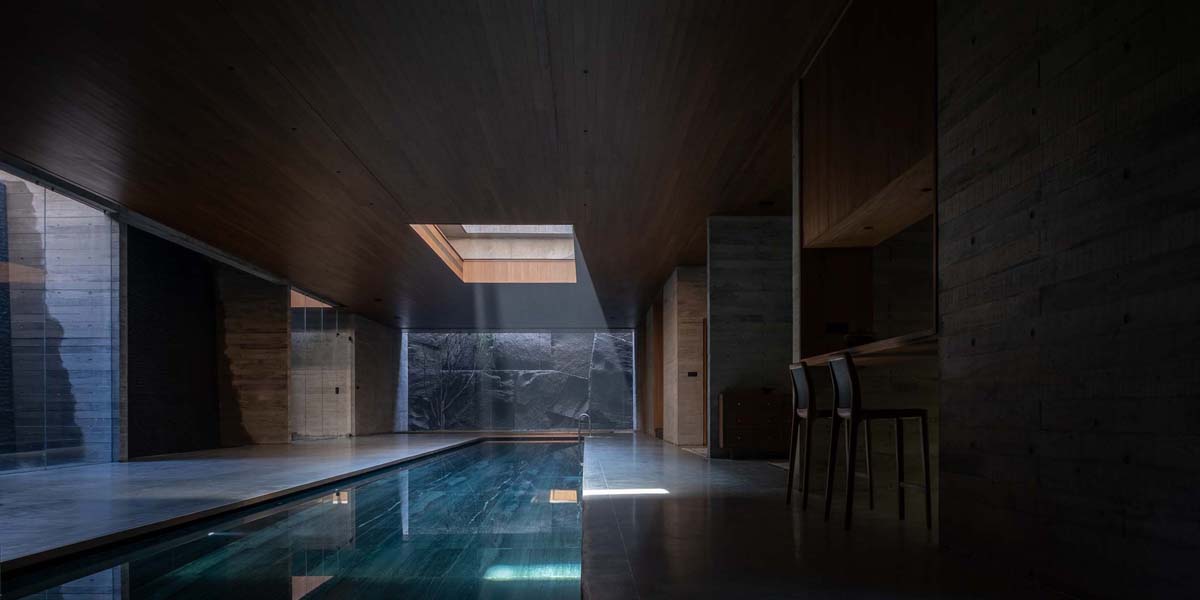
A huge skylight brings sunlight to the basement swimming pool.
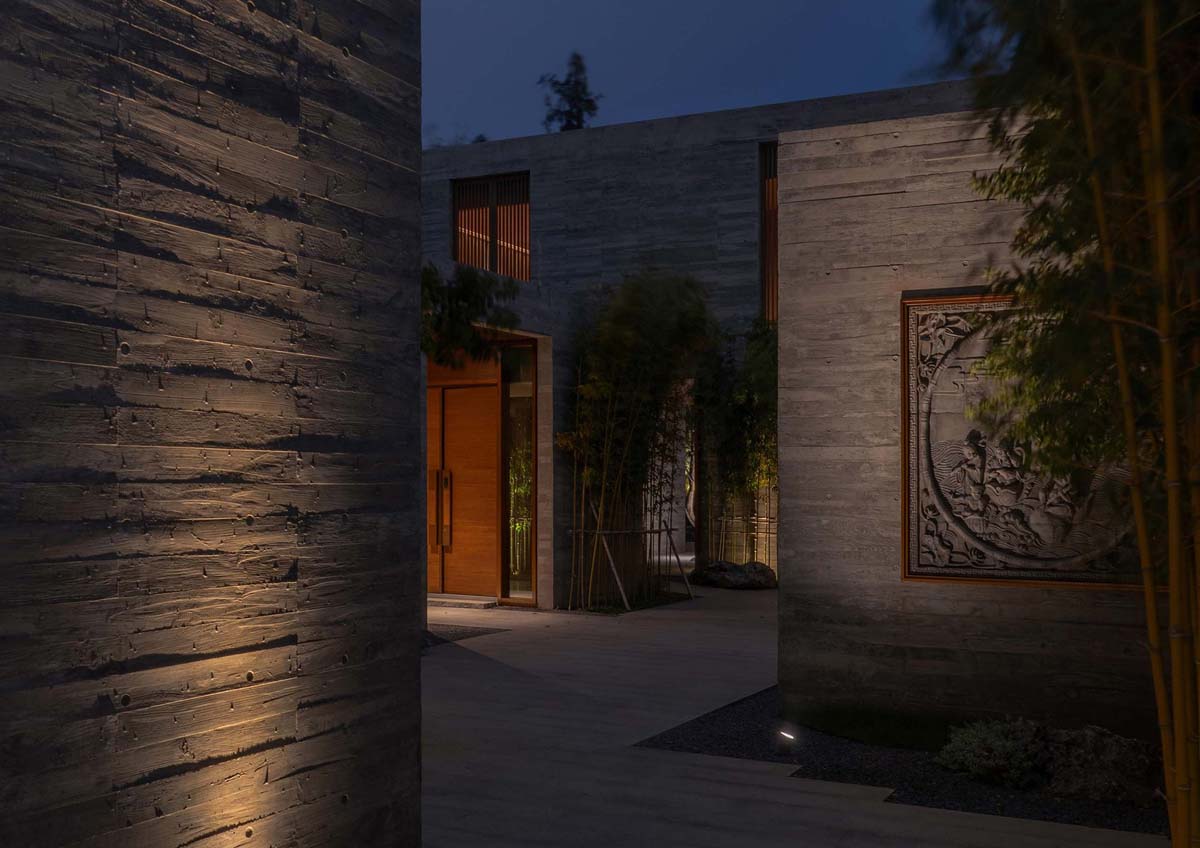
The residential units that belong to each brother and their family are merged into one building but are entirely separate inside. They are entered via two independent, staggered entrance halls from a ribbon courtyard to establish privacy.
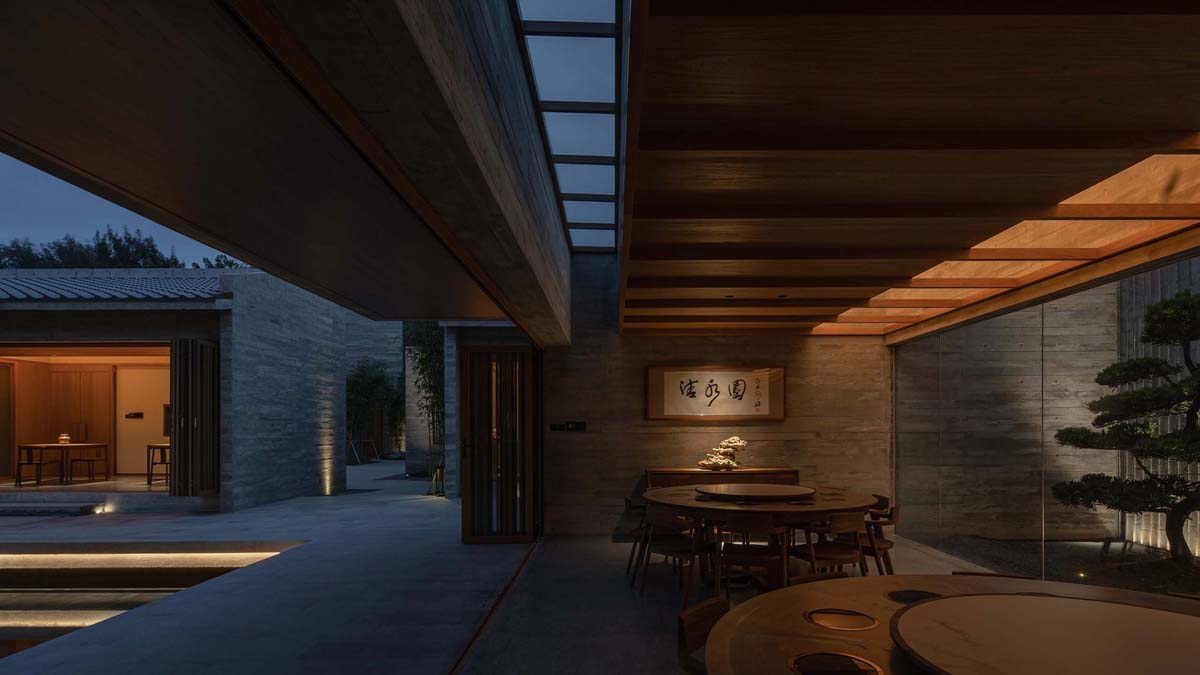
The combined home is equipped with a grand dining room, which is granted the best views of the internal courtyard design. The space is furnished with two round wooden dining tables each with ten wooden dining chairs to accommodate family and friends during the festivals. A smaller courtyard backs the room to create an open flow.
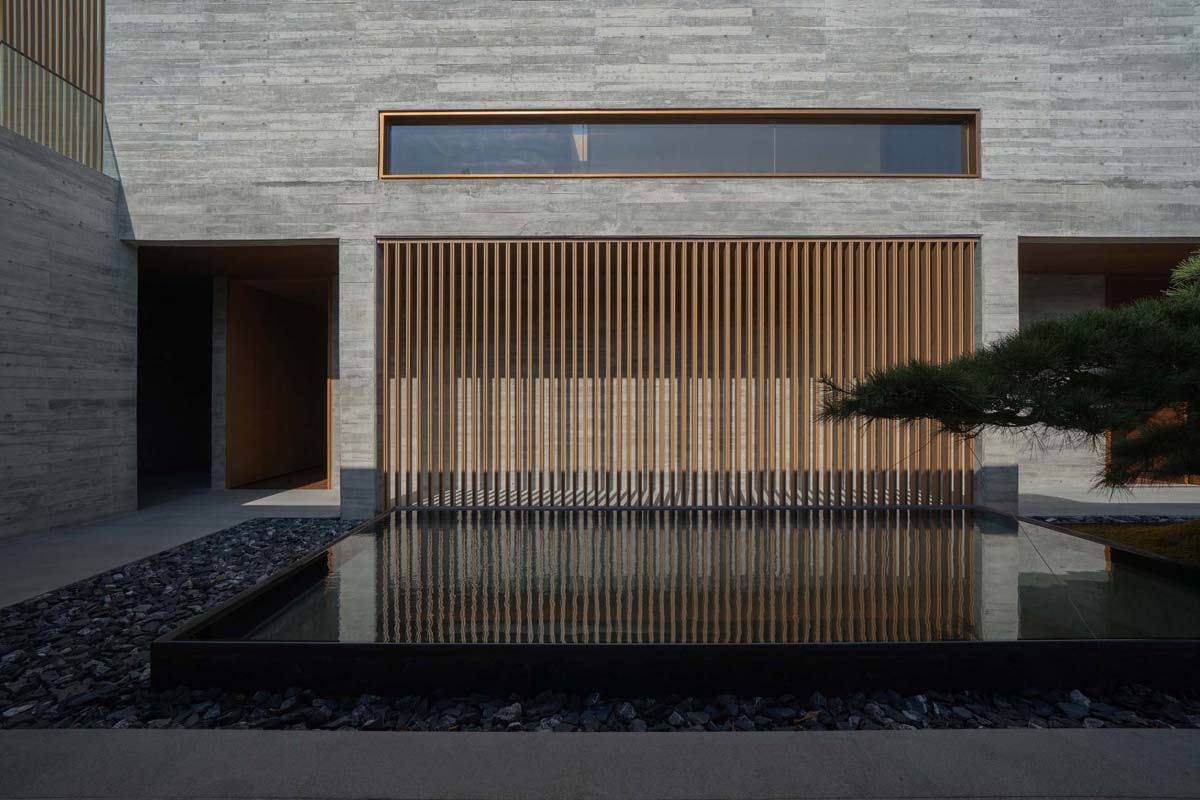
From stone steps at the northeast entrance, under shaded eaves, and through a series of narrow and wider spatial arrangements, the courtyard pathway is a private trail of tranquillity.
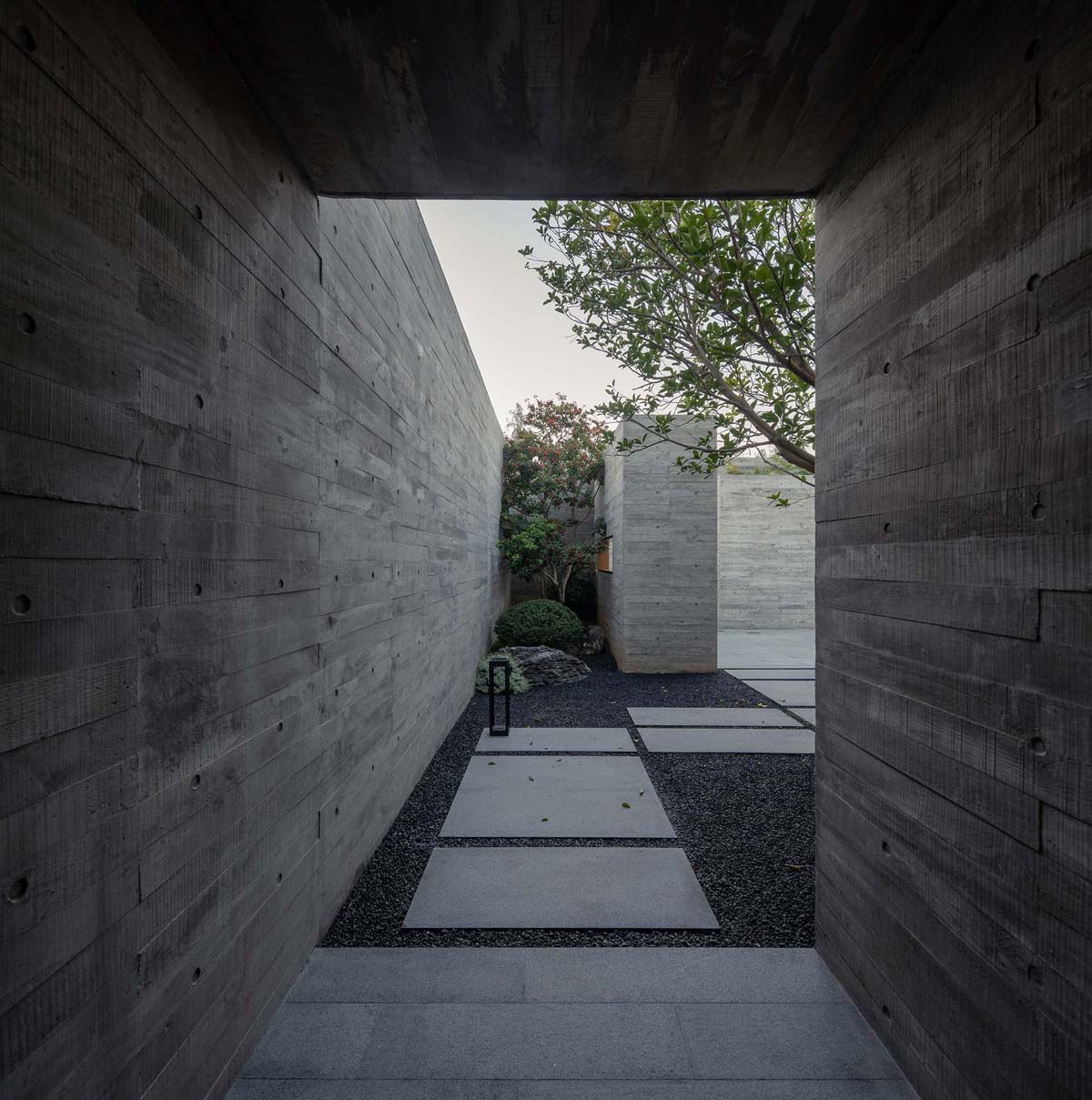
Via the south side of the building, a lower corridor reaches the terrace where the whole view fully unfolds.
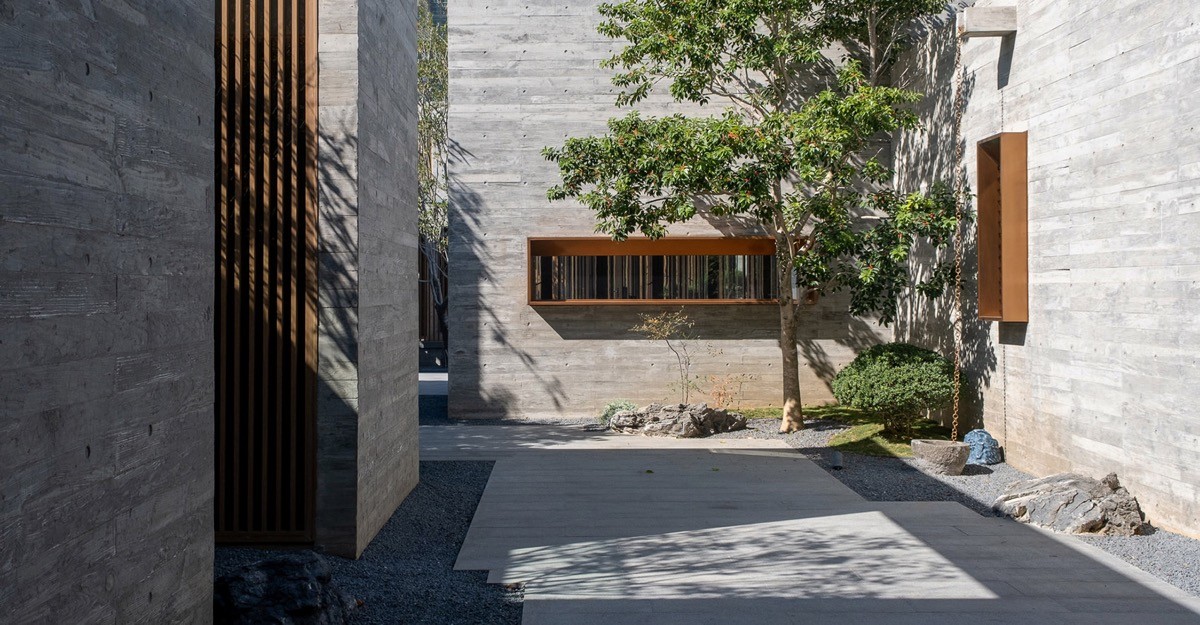
For many years, the use of courtyards has been commonplace in local houses to improve environmental conditions and accomplish natural division between private and communal spaces.
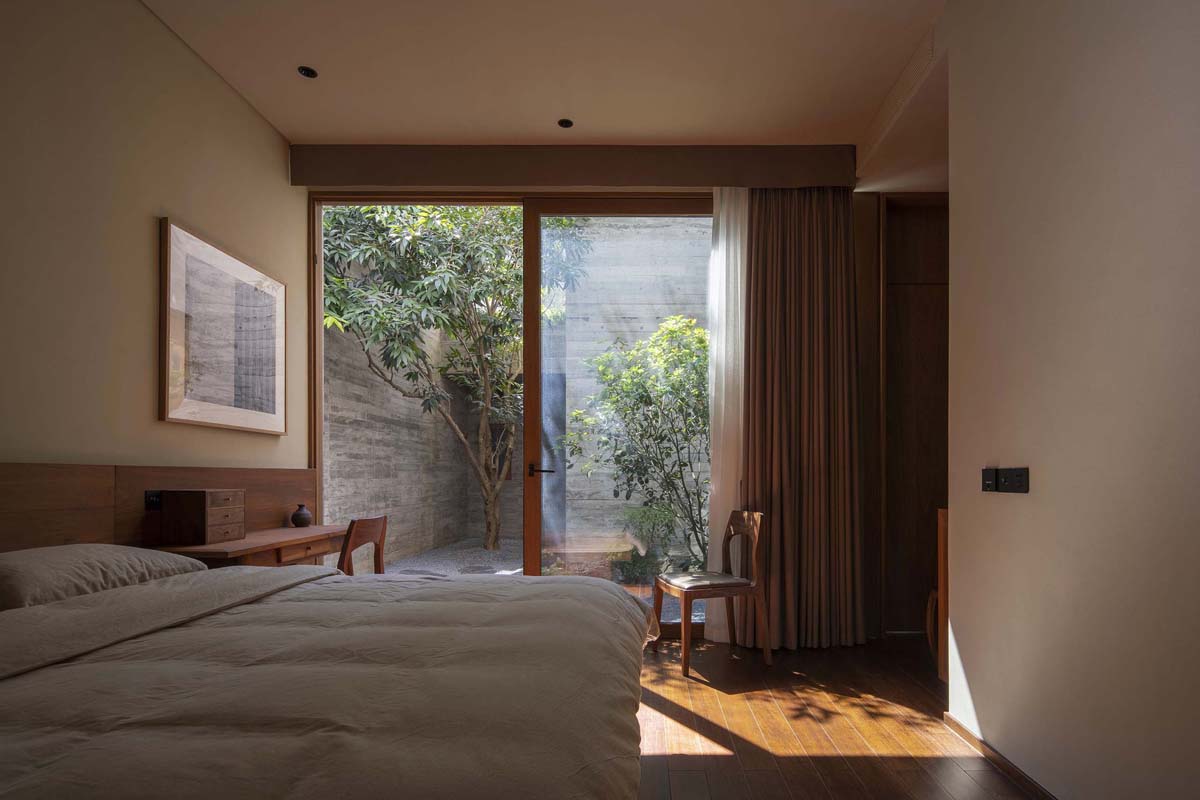
Bedrooms are given an outdoor connection with a small courtyard.
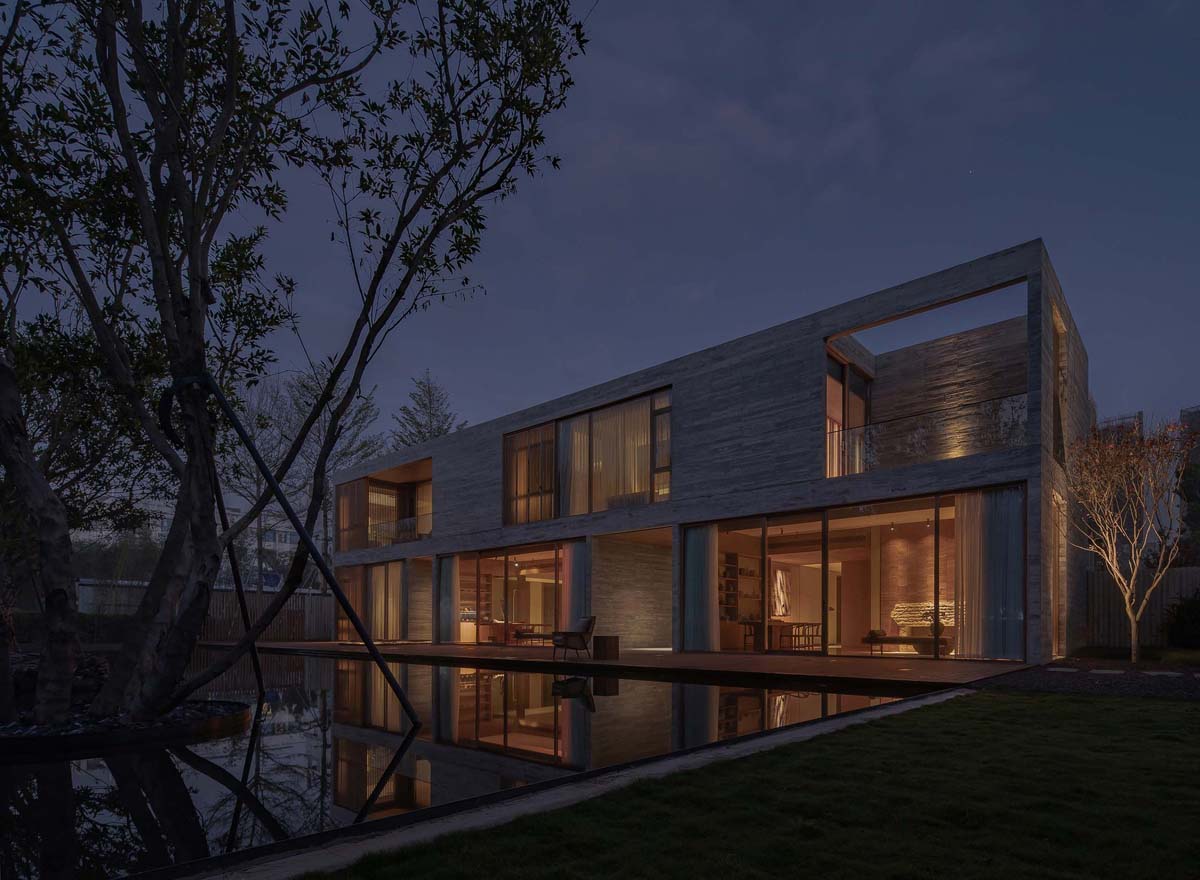
Both of the master bedrooms are situated upon the south facing side of the second floor, which is faced toward woodland that leads to the sea.
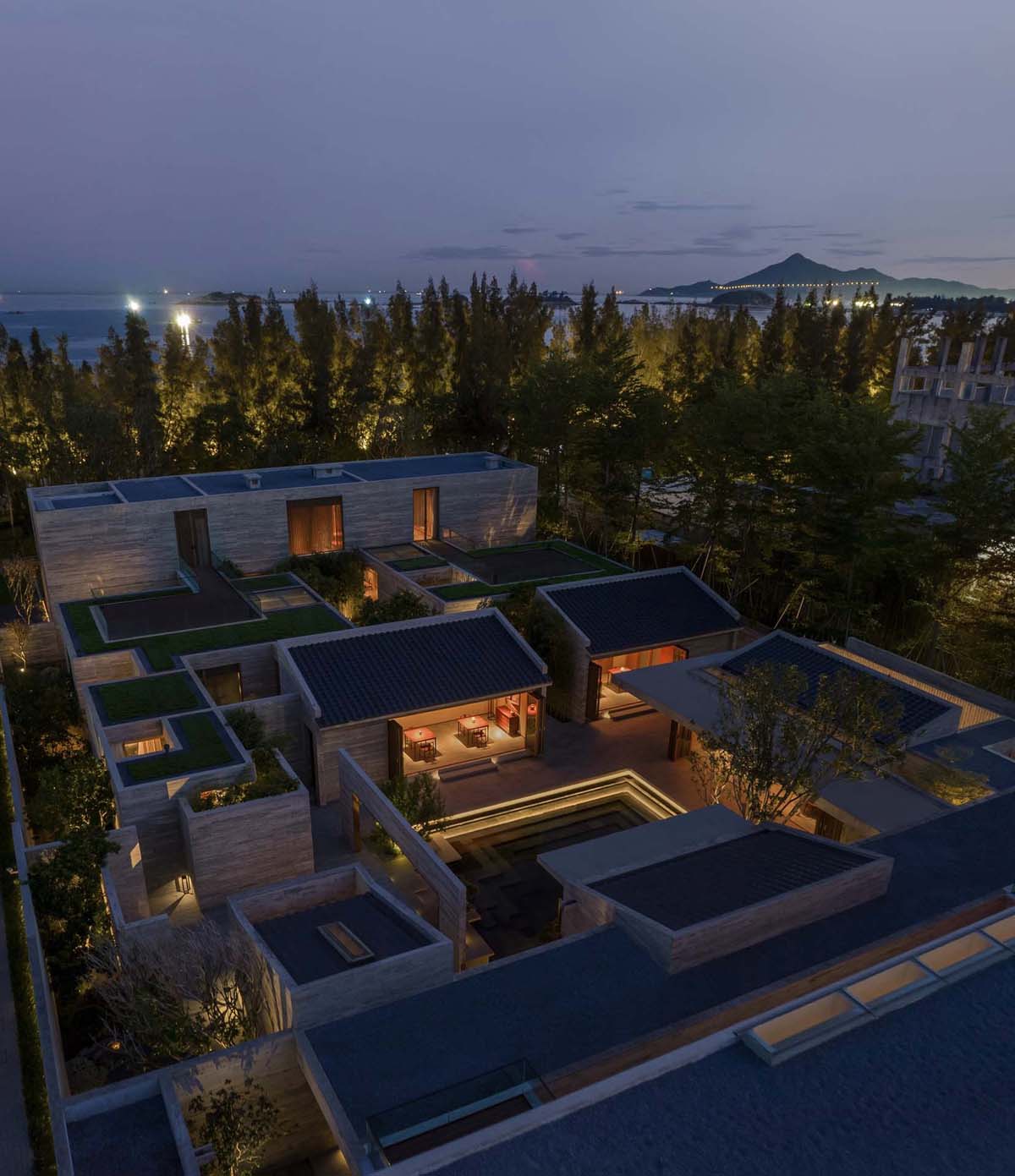
Other than some land to the south, where the sea is narrowly observable through the trees, there are no remarkable views to be had, since the height of the building is restricted to just ten metres. This makes the courtyard and landscaped pathways all the more precious.
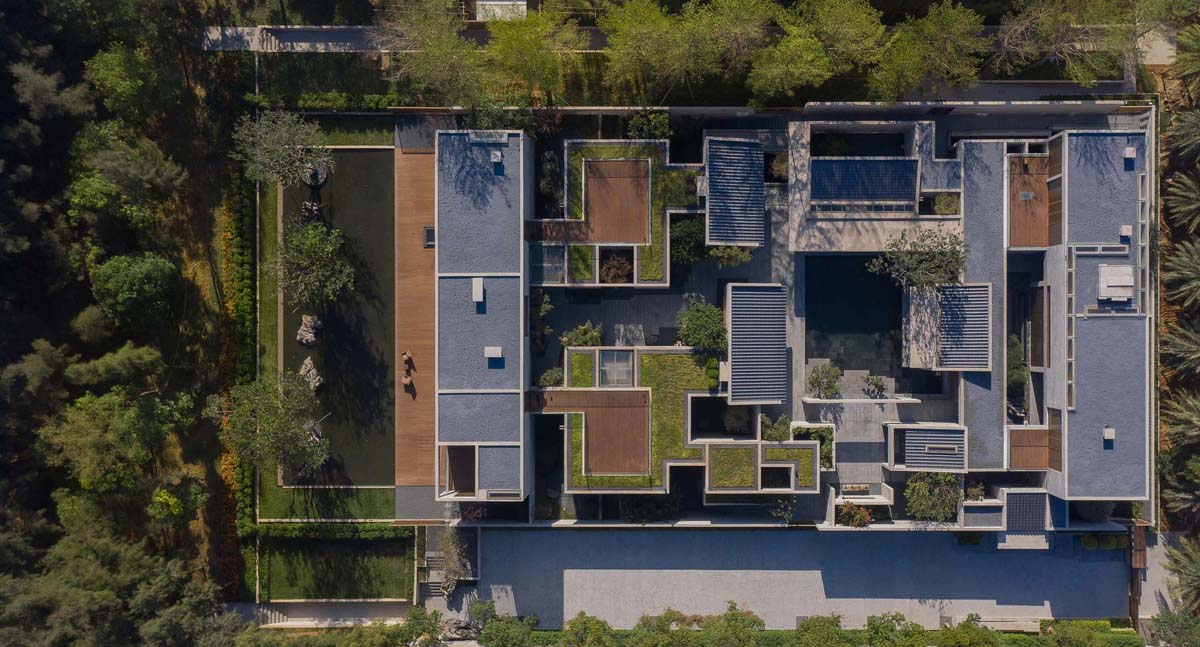
The 30-metre-wide dense forest belt serves as a windbreak and shield from typhoons. The 3-acre, rectangular residential plot has its shorter sides at the north and south. Neighbouring buildings stand to the east and west.
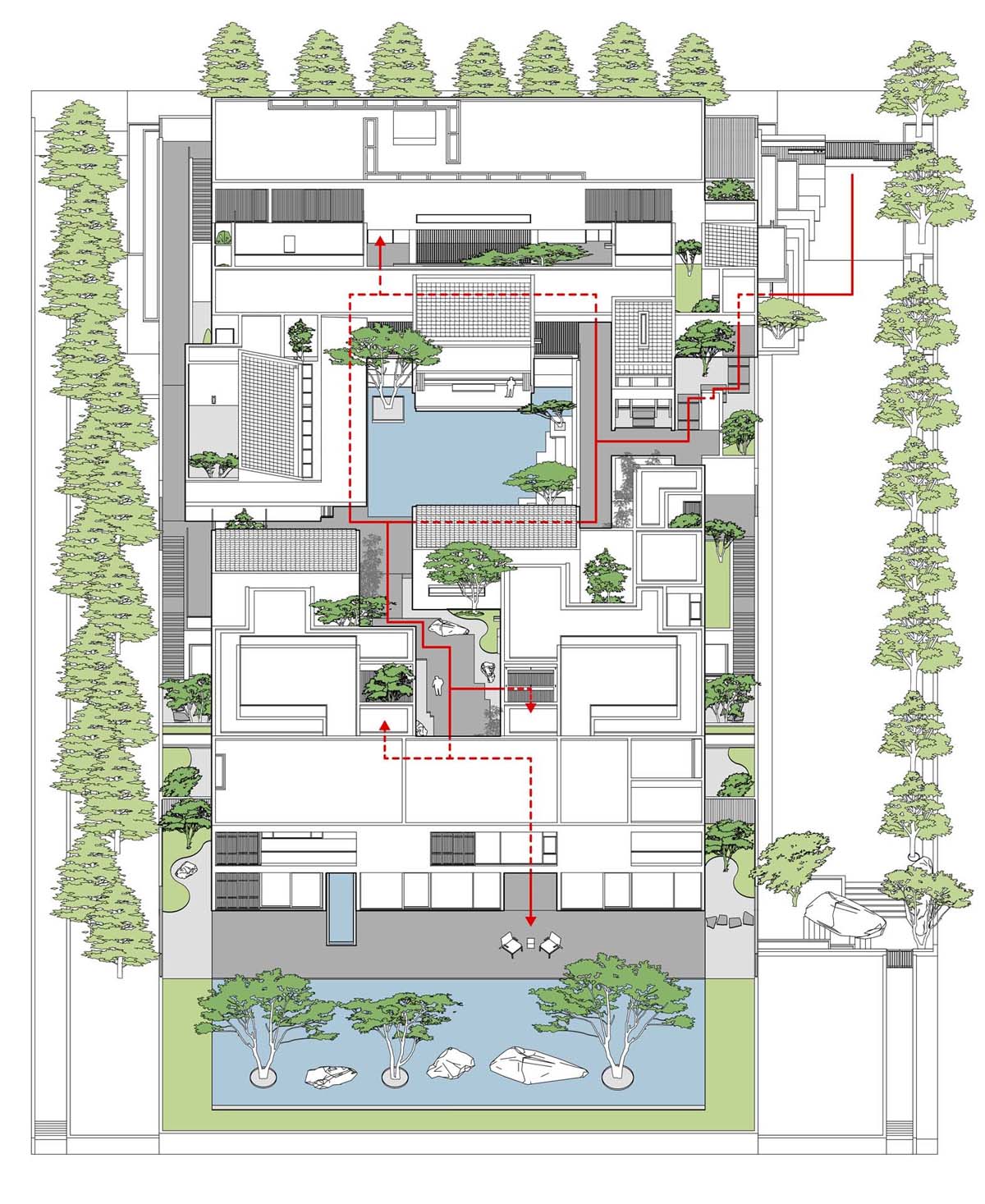
The entrance is on the north side of the road, which meanders into the social leisure space. The south of the home compound is the private residential area. The division of the two independent residential units fluidly forms the ribbon courtyard.
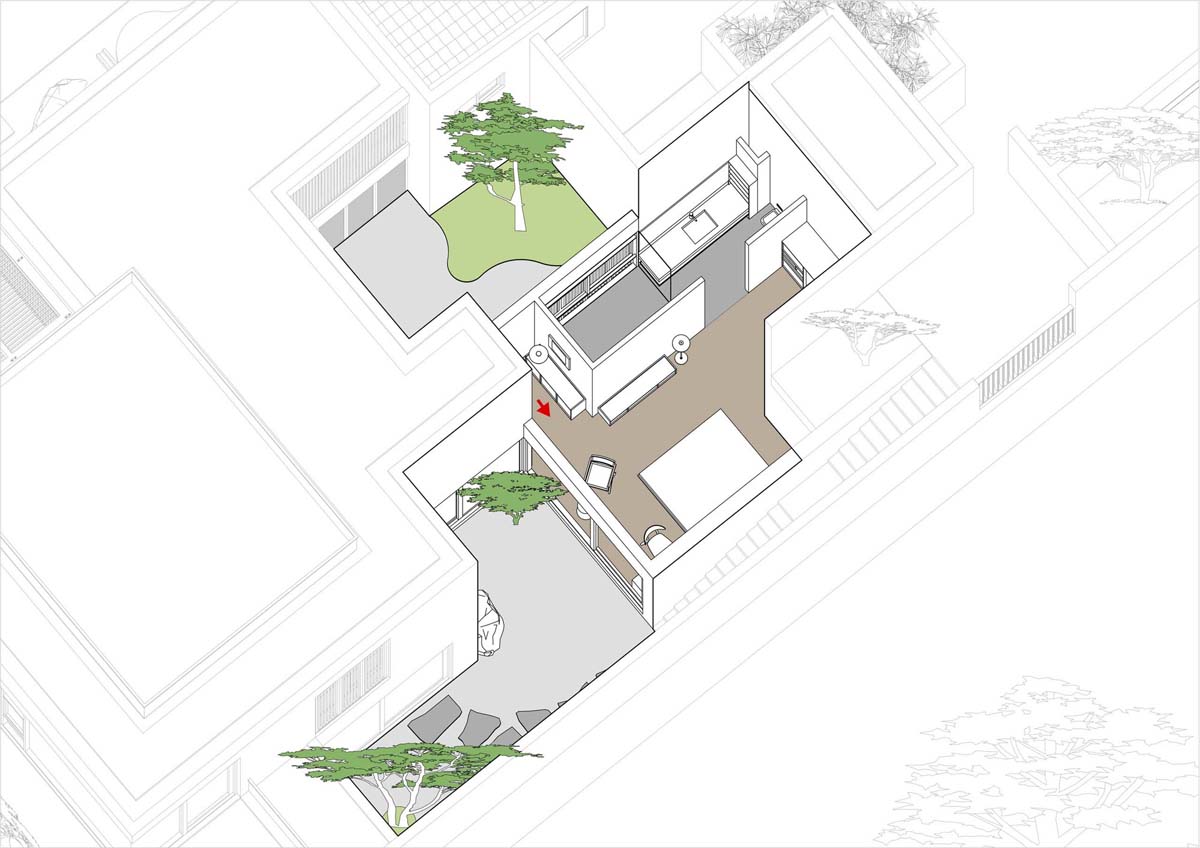
Just off the northernmost corridor, multi-function rooms within the two units can be used as a casual dining room, for arts, as a reading room, or for games.
